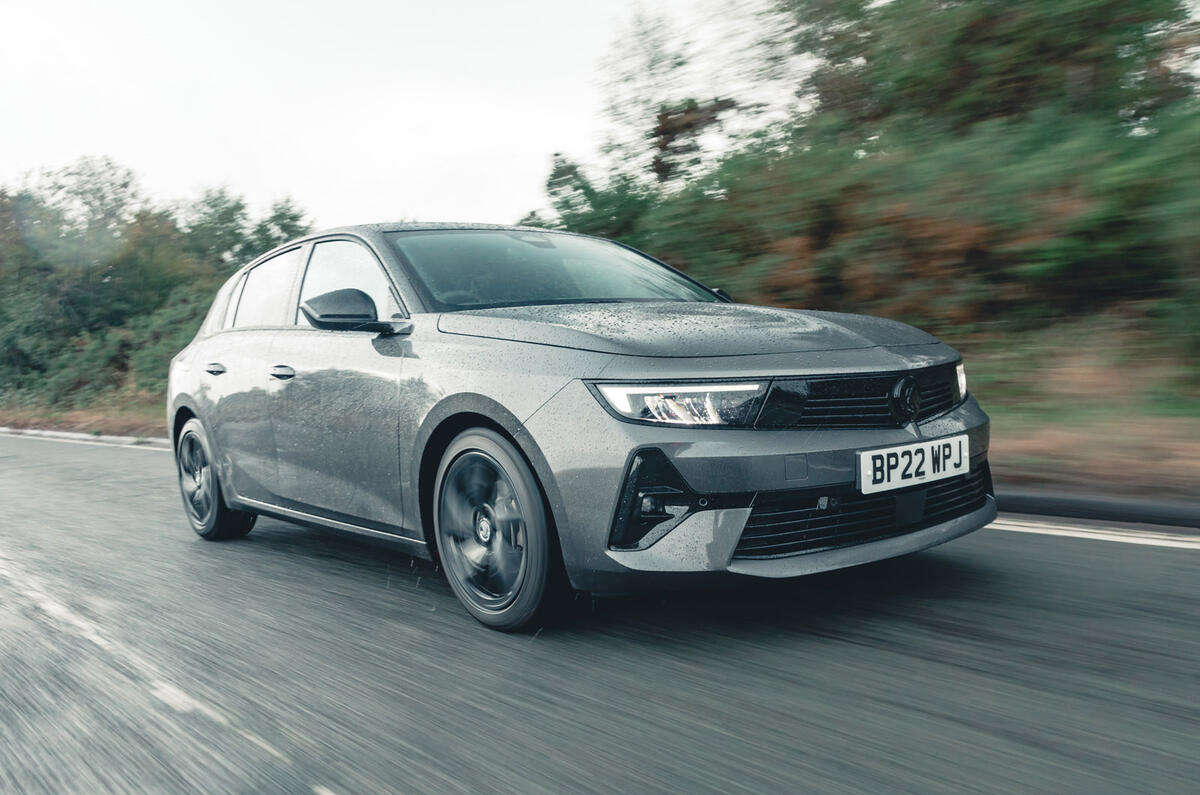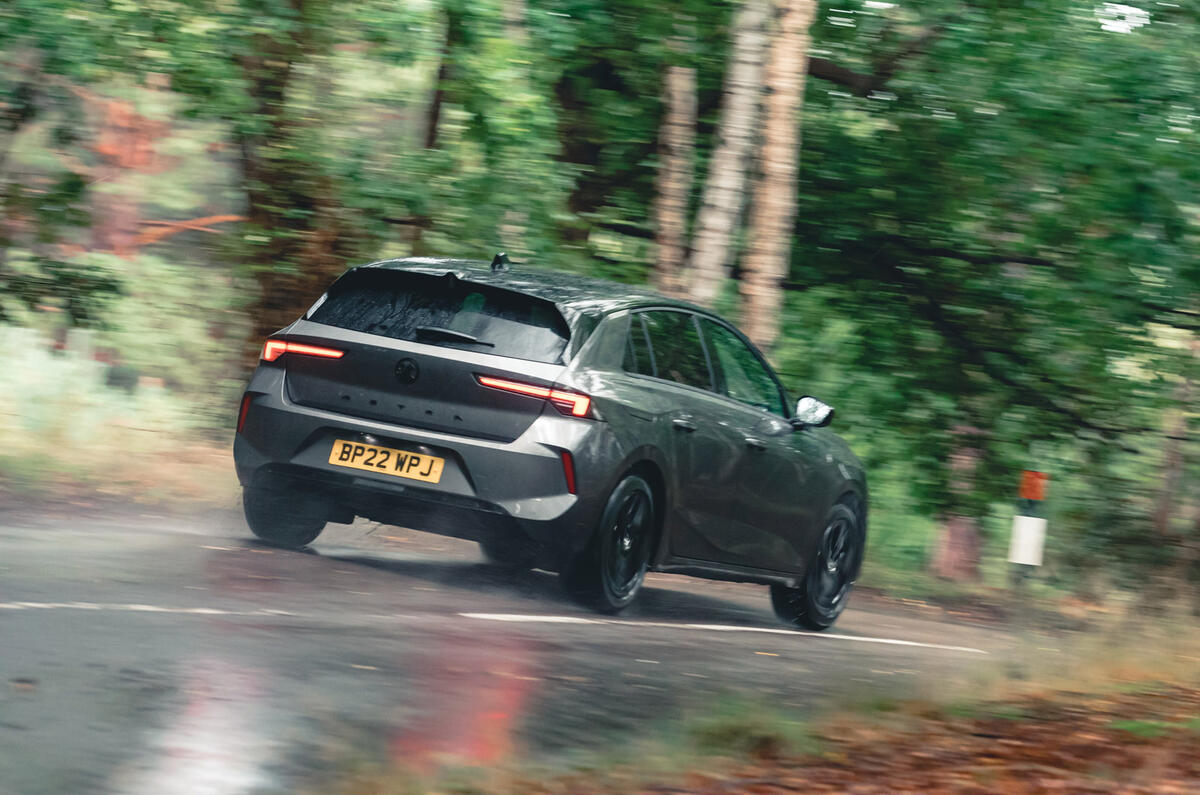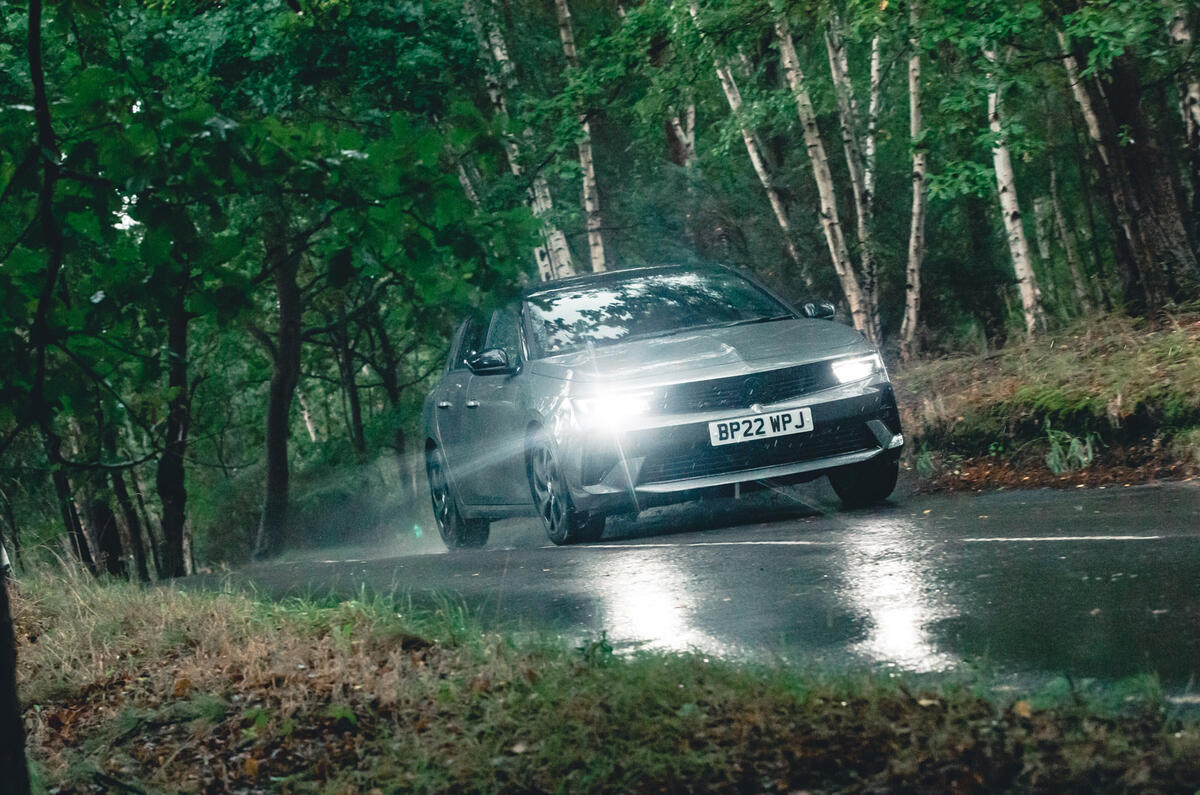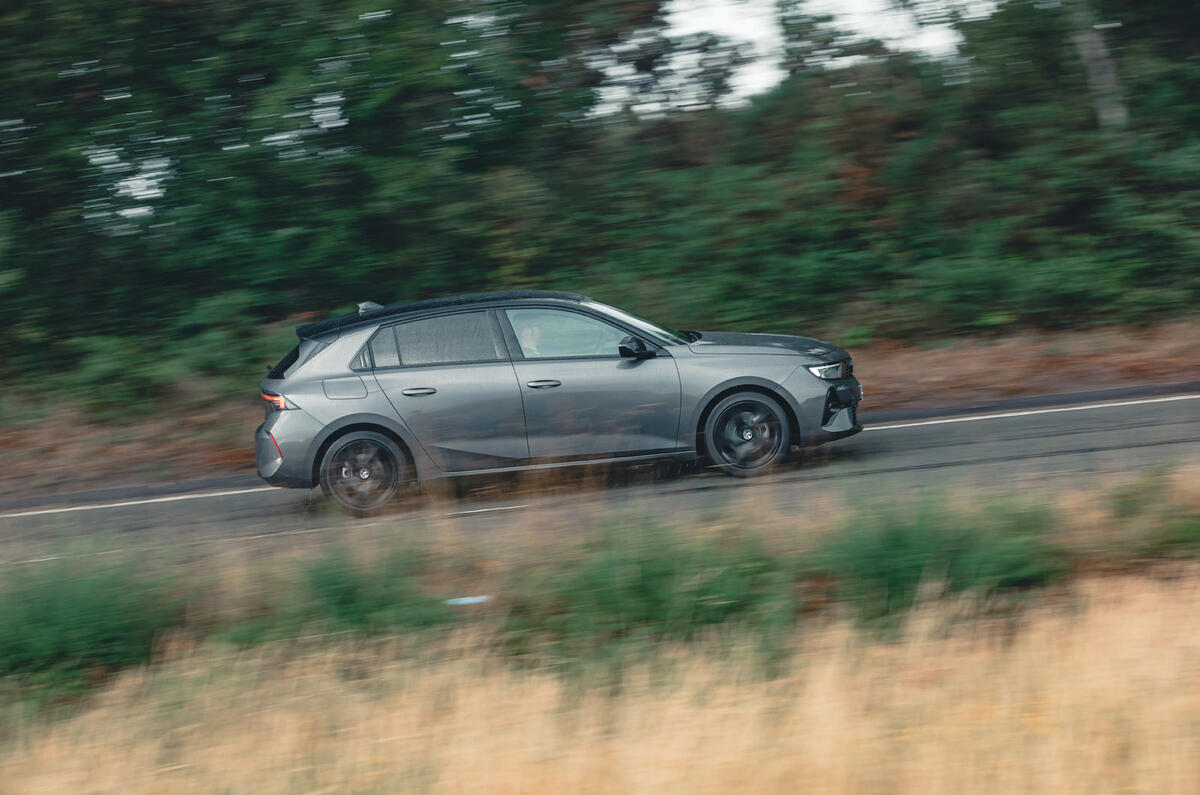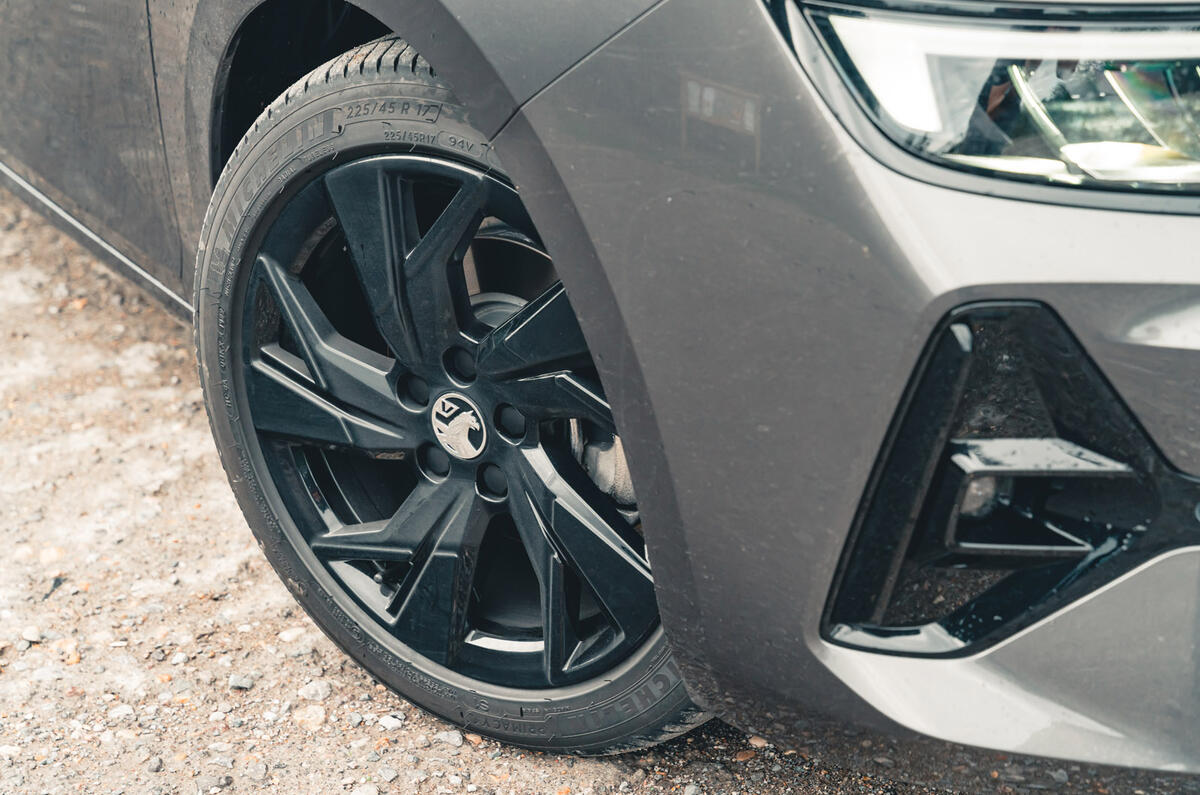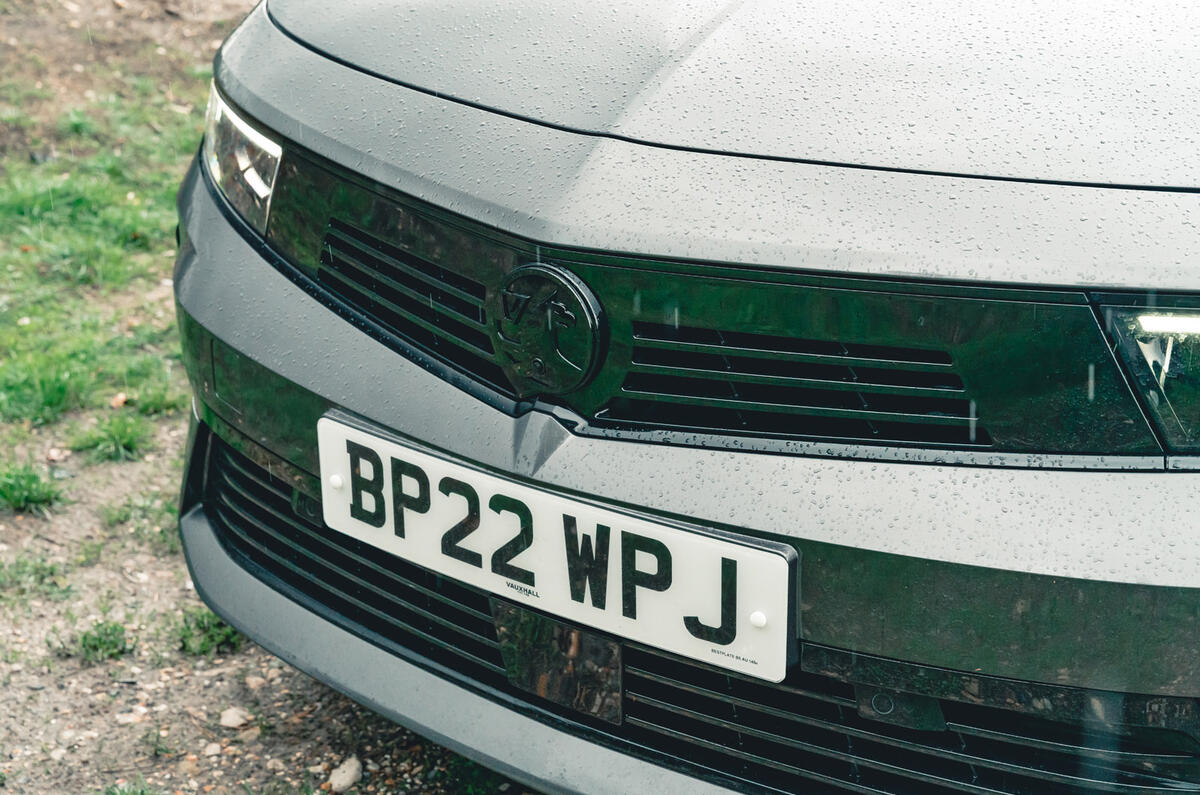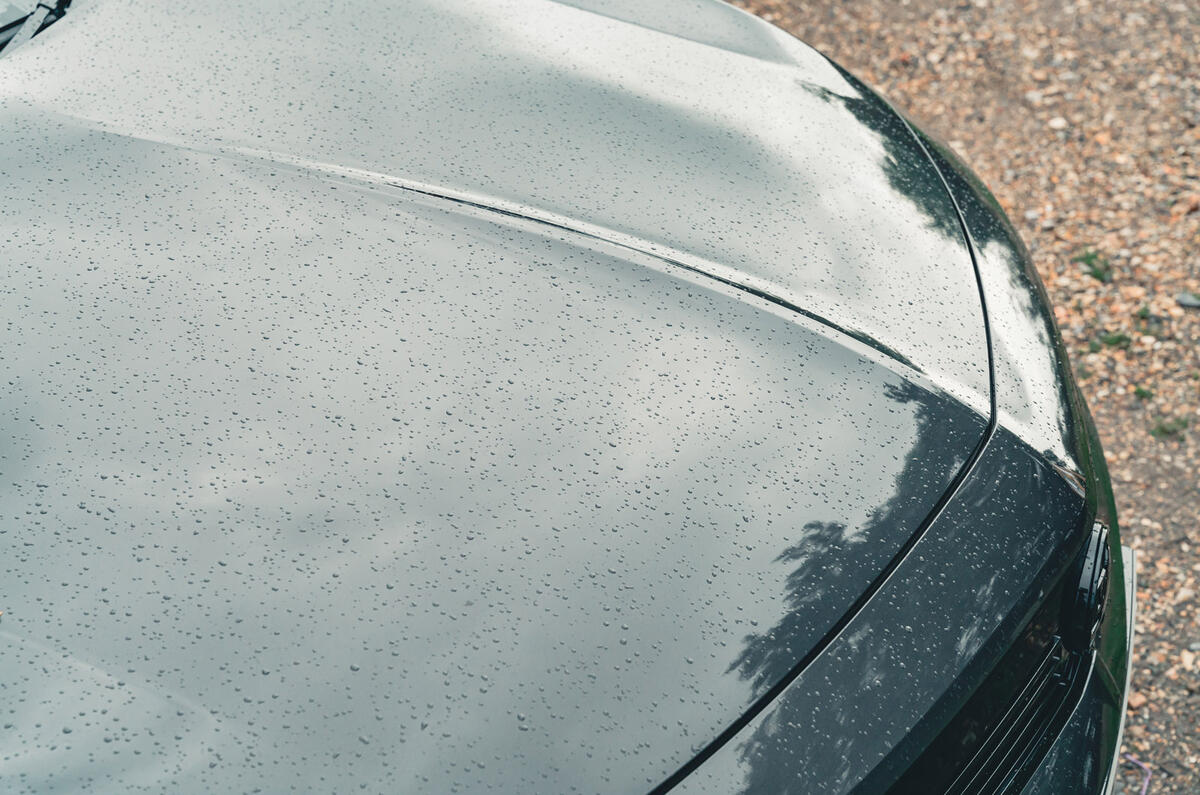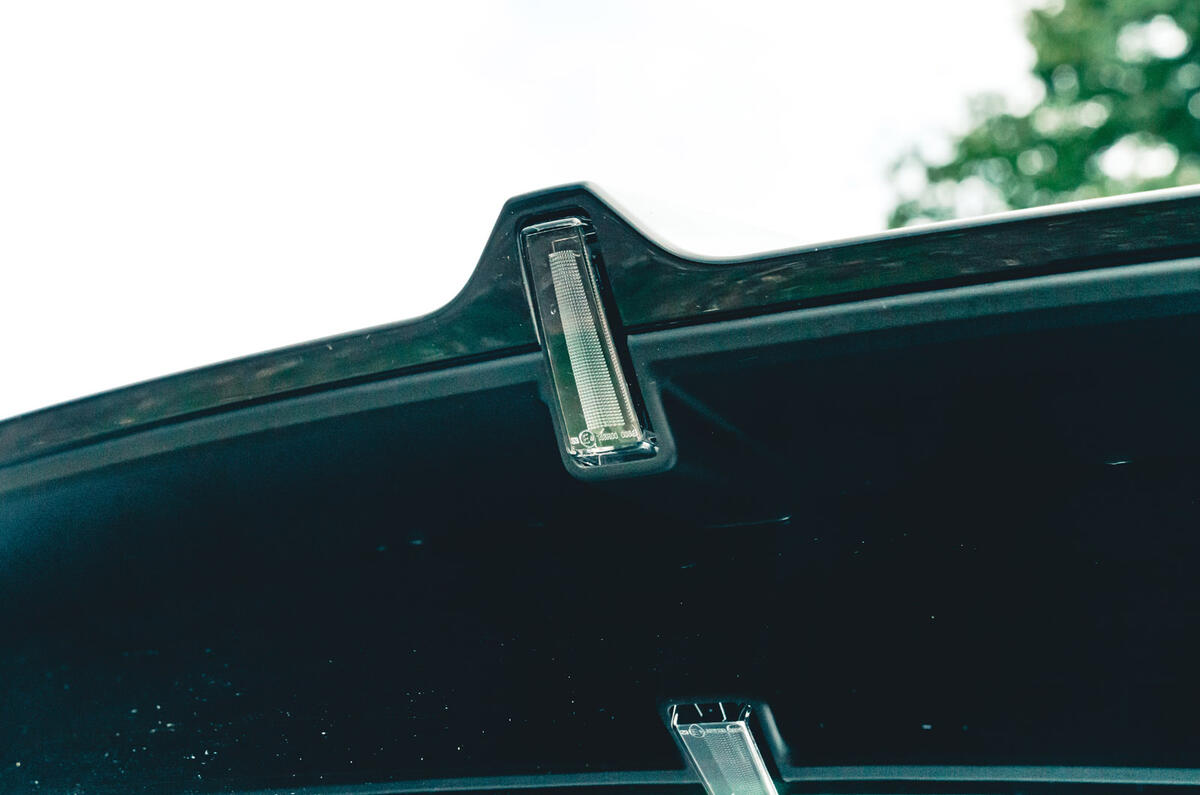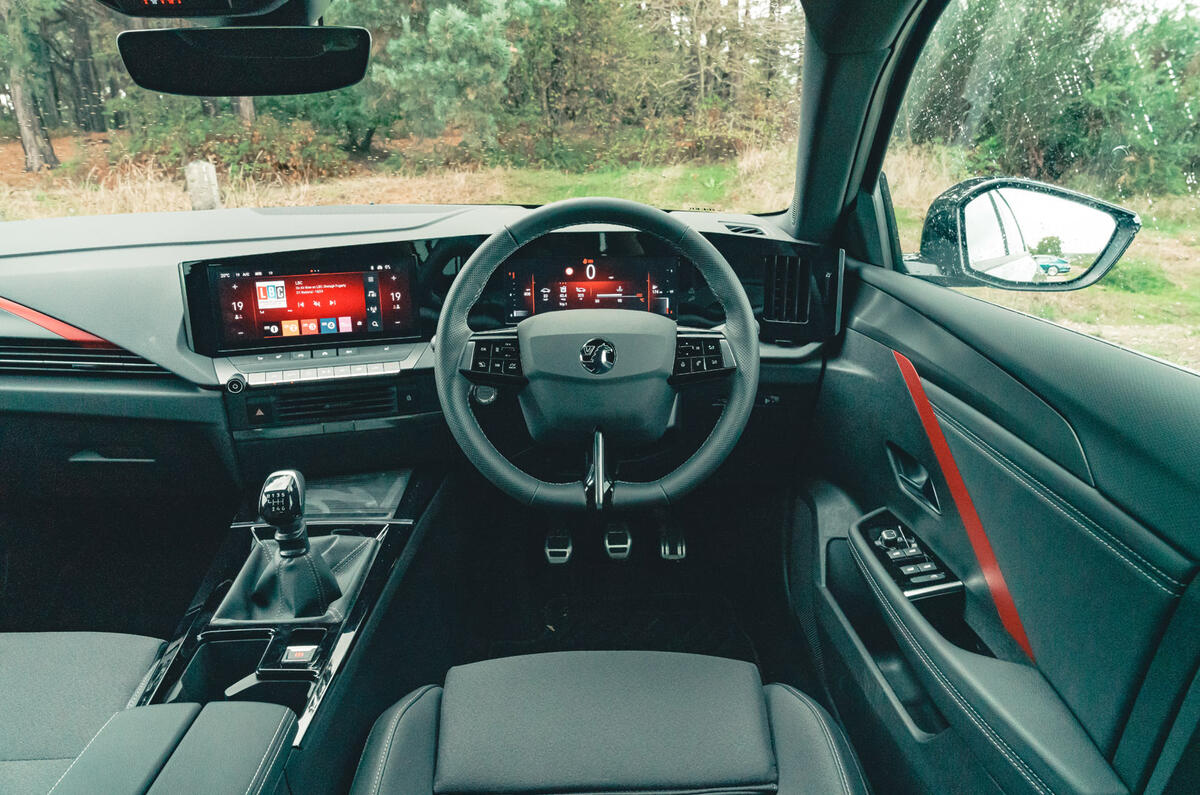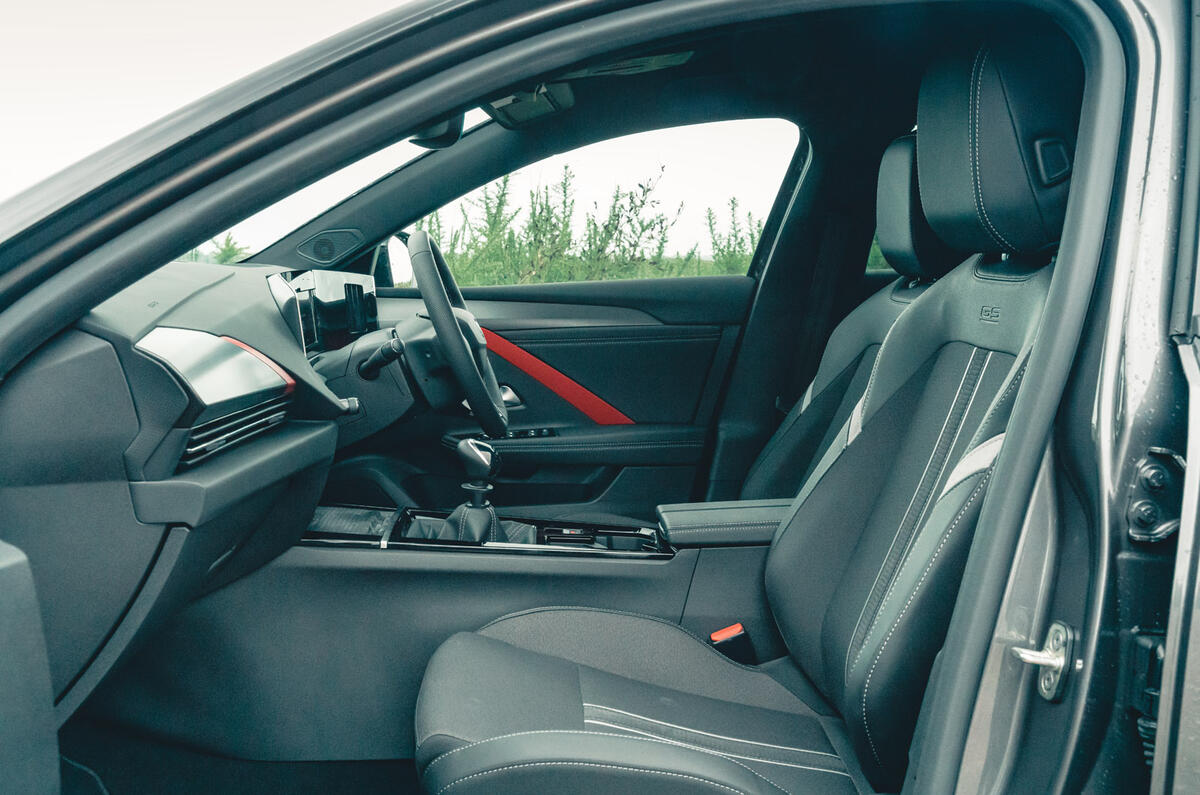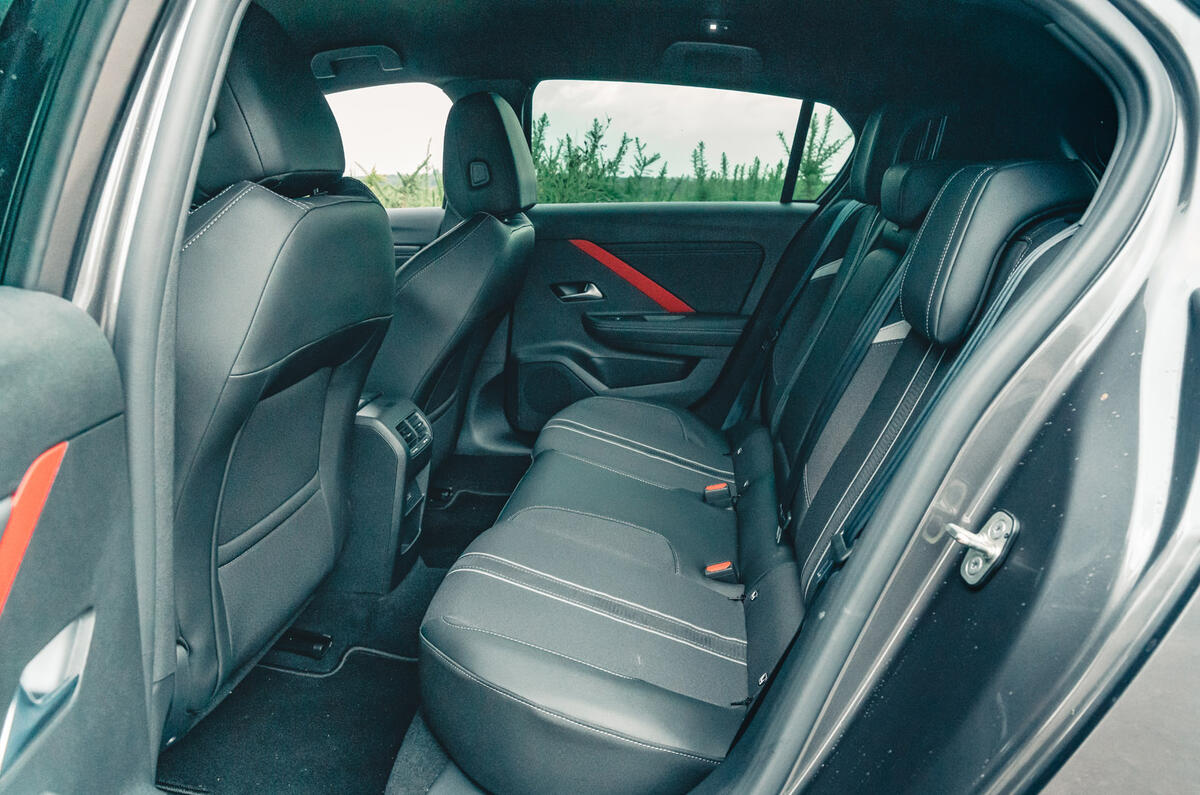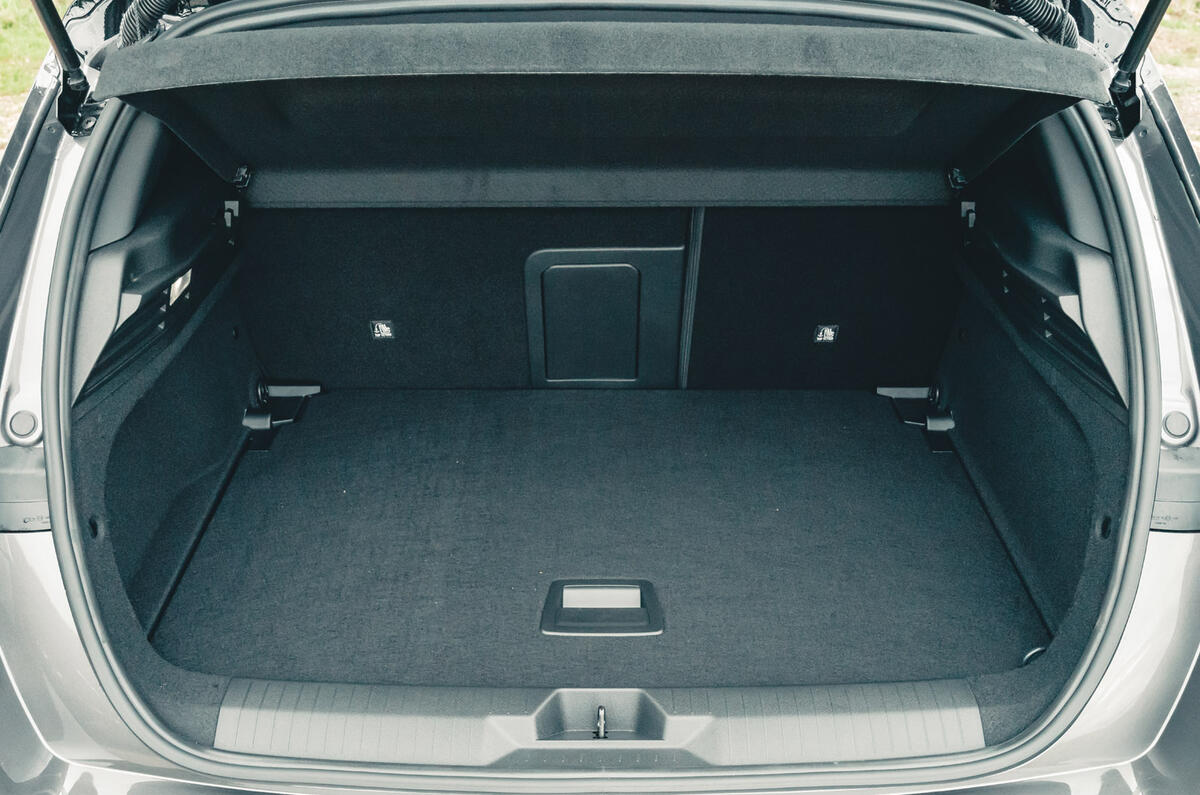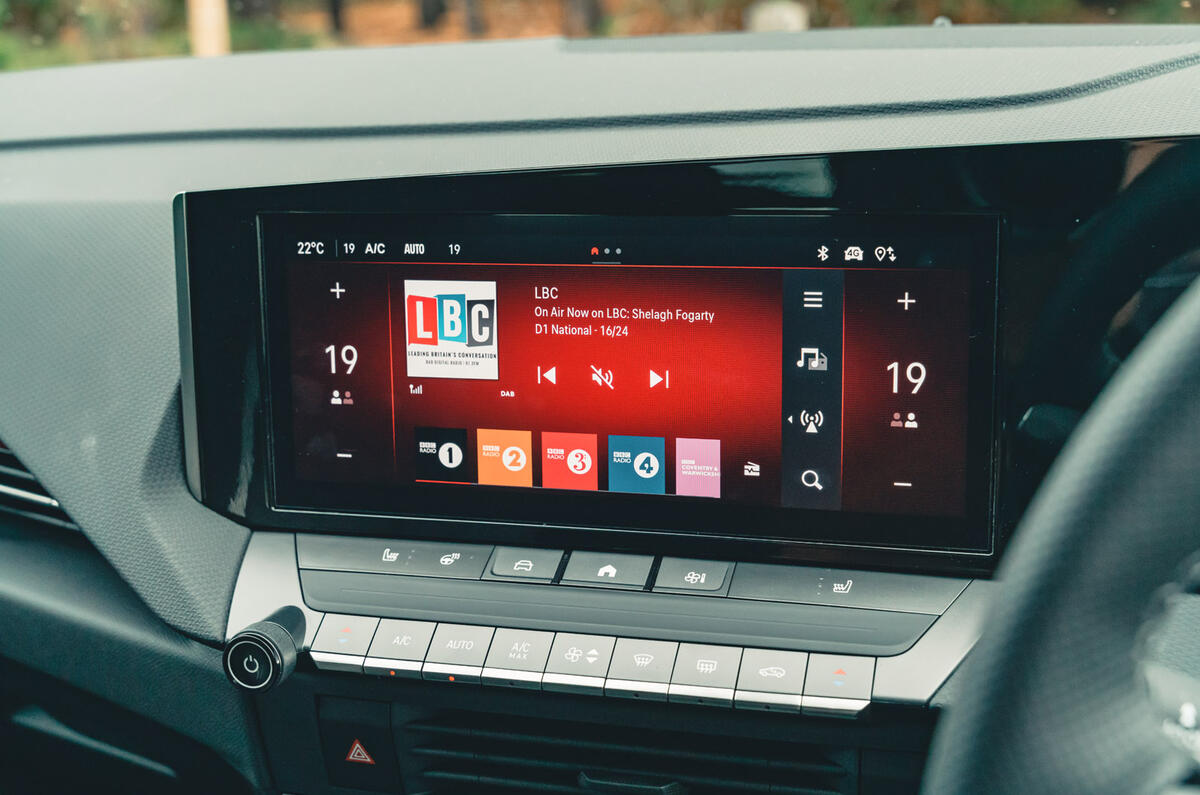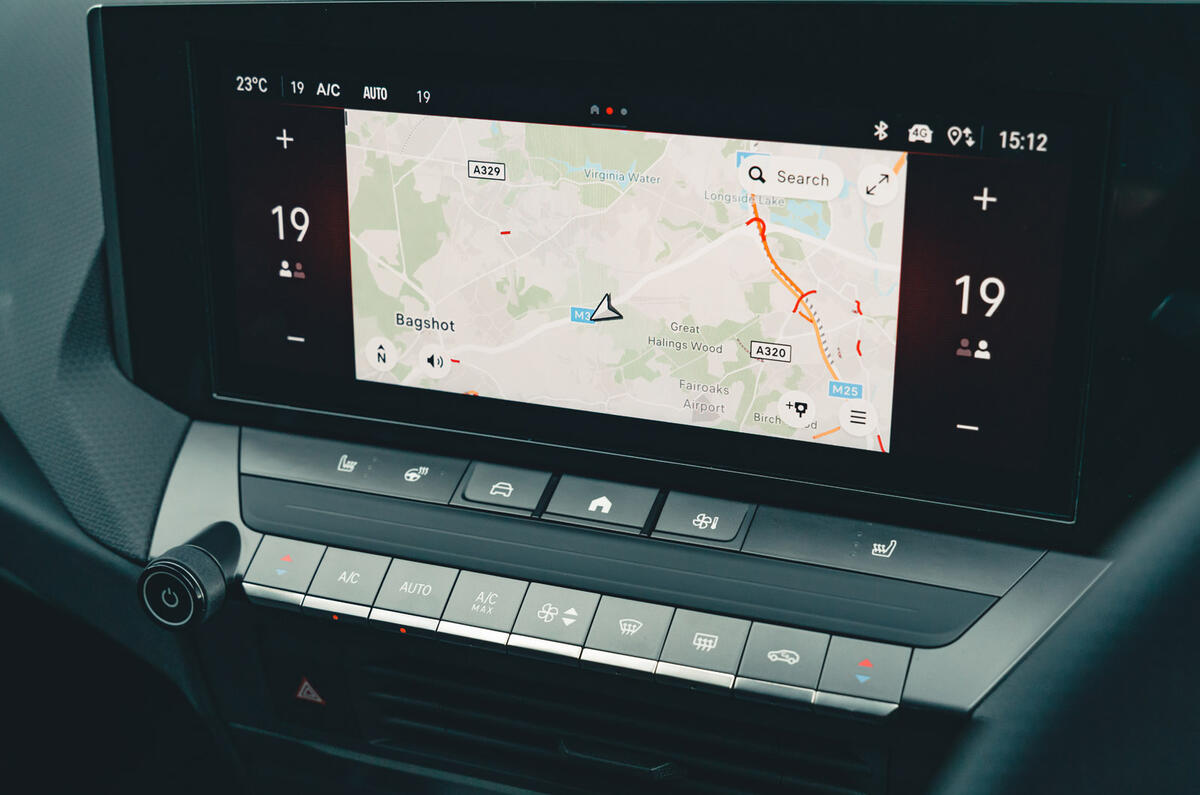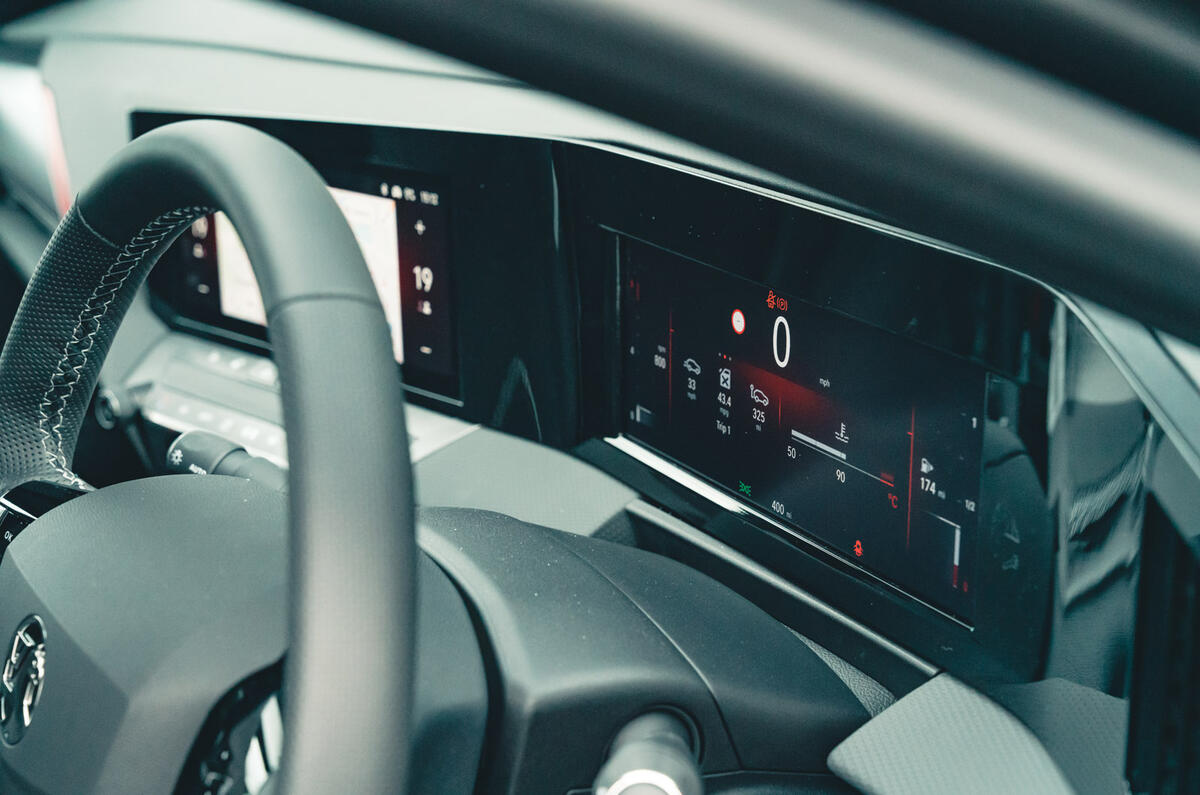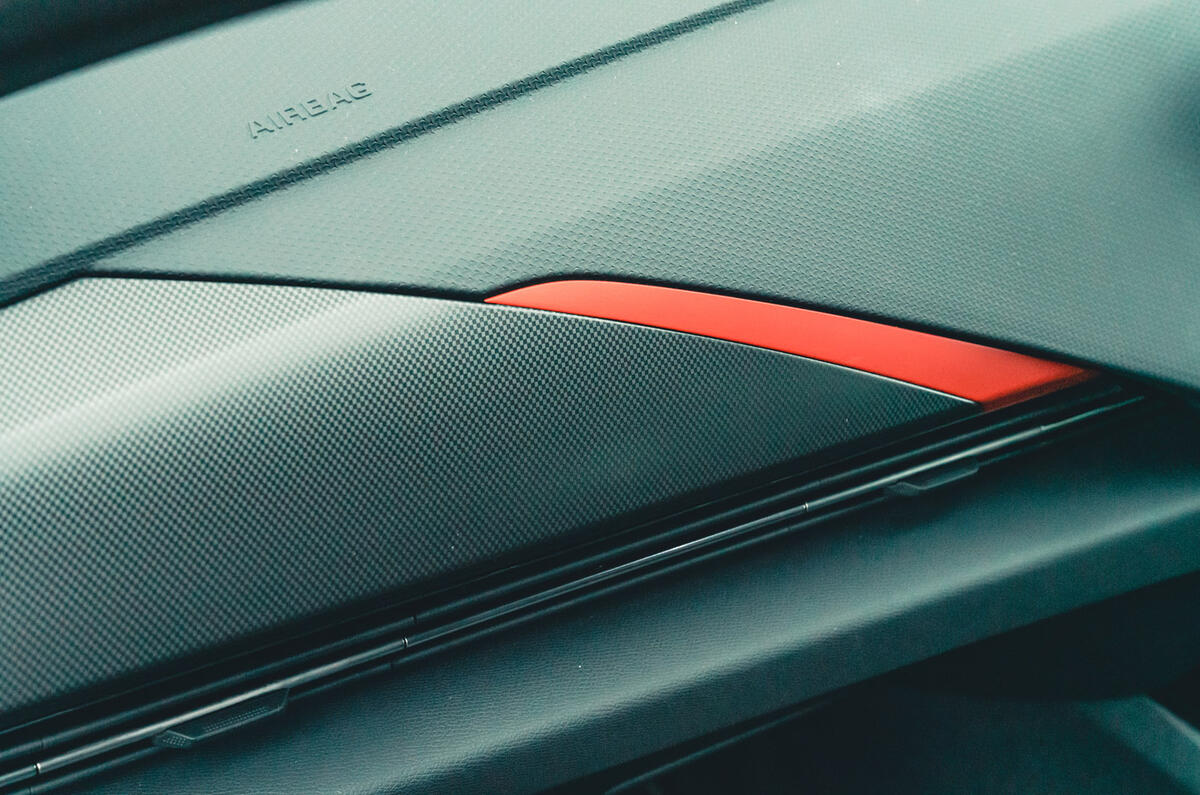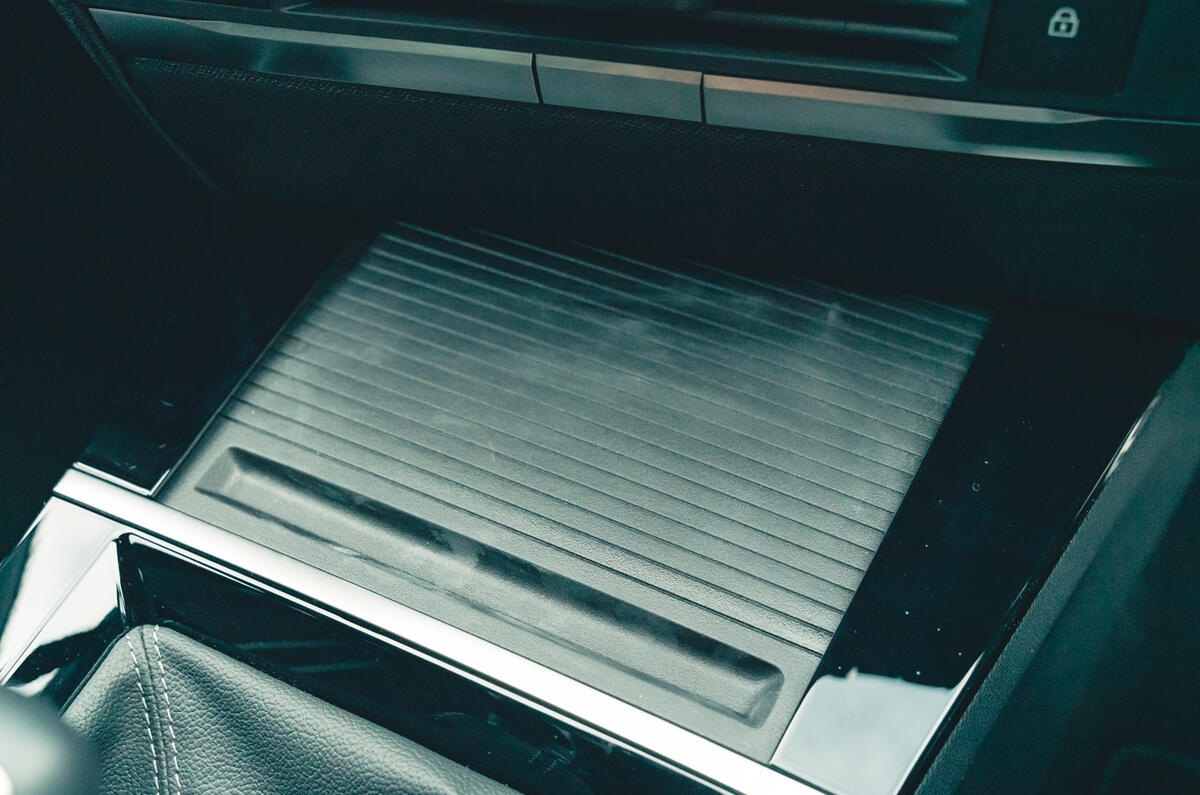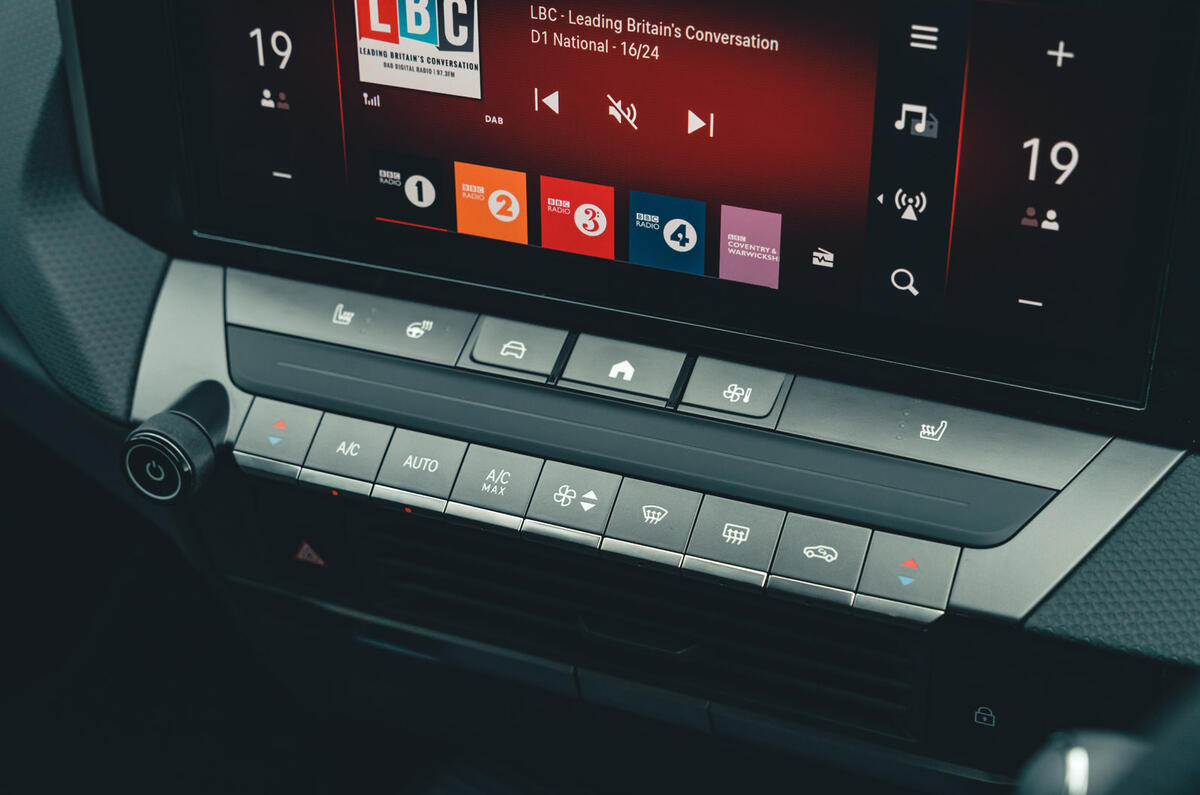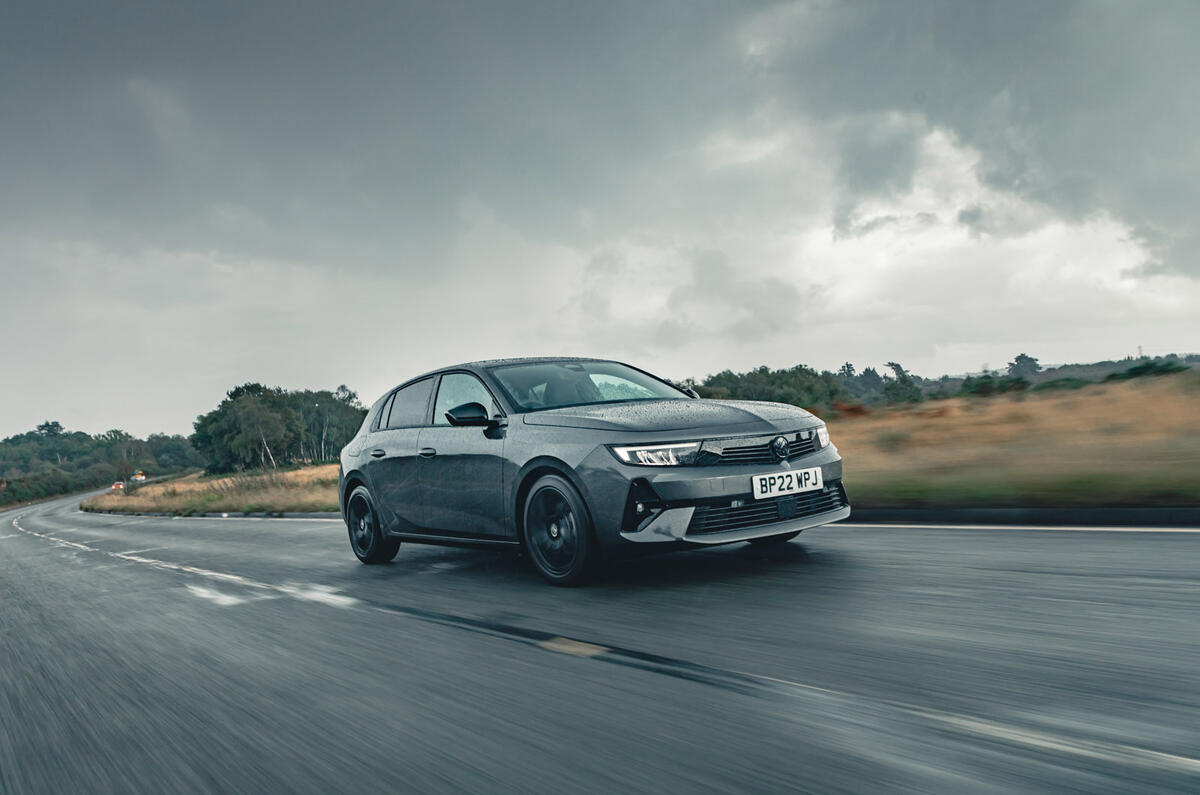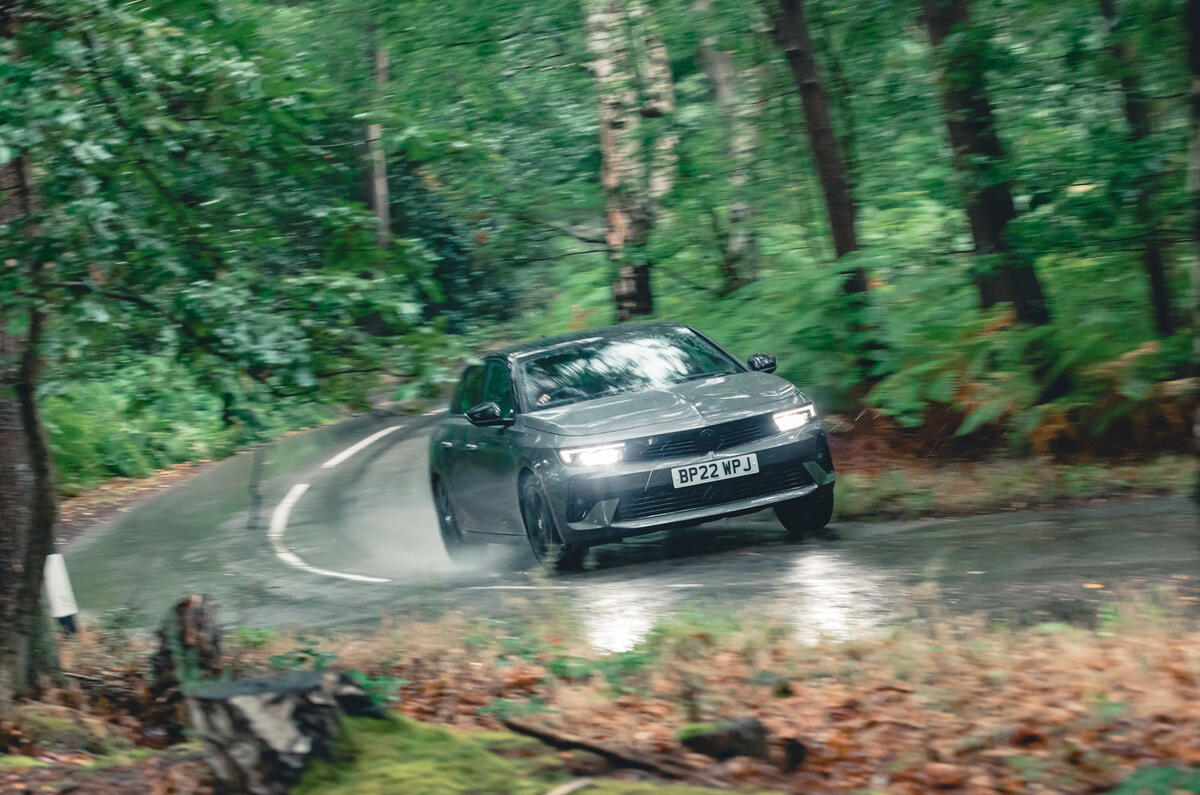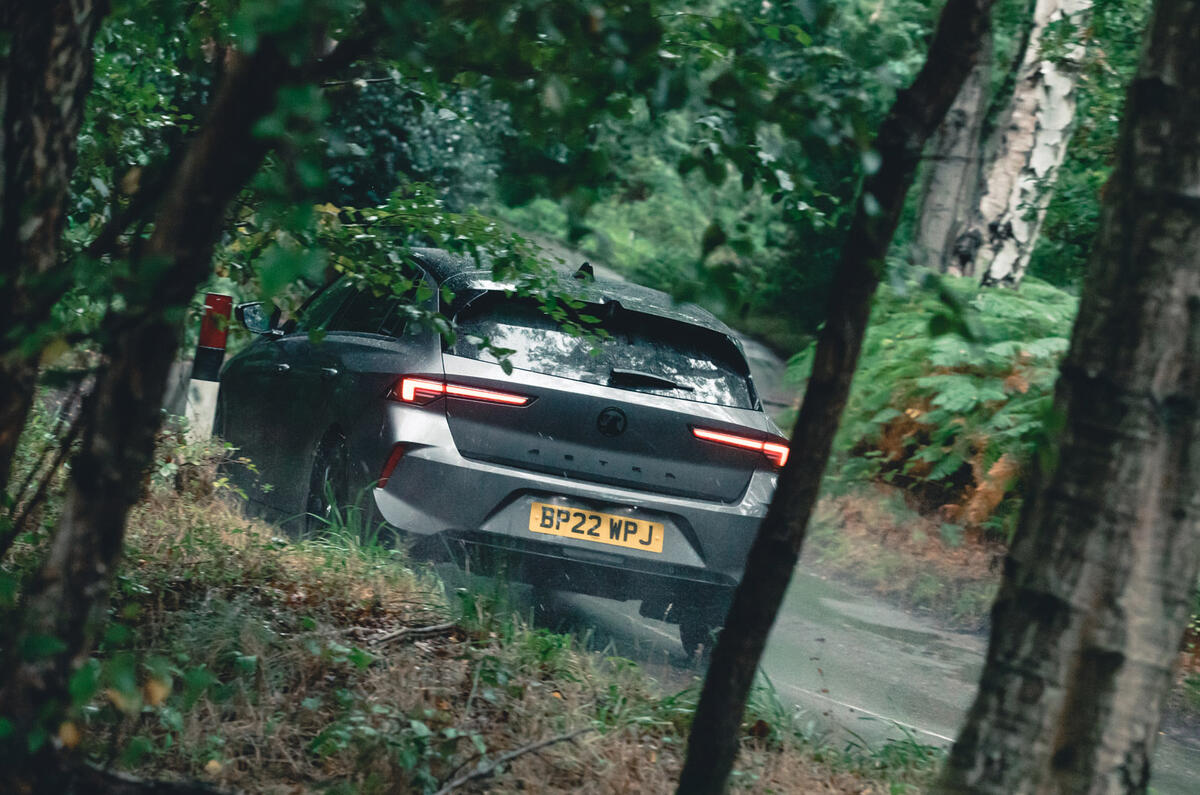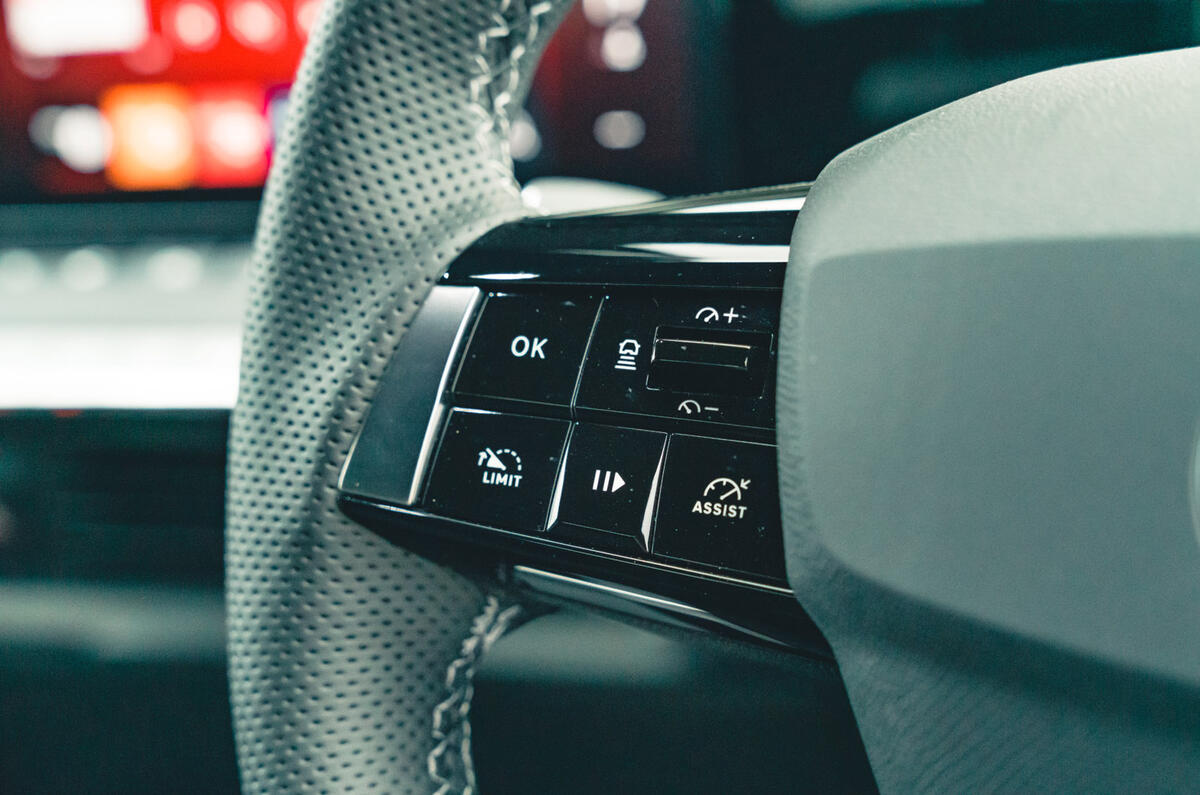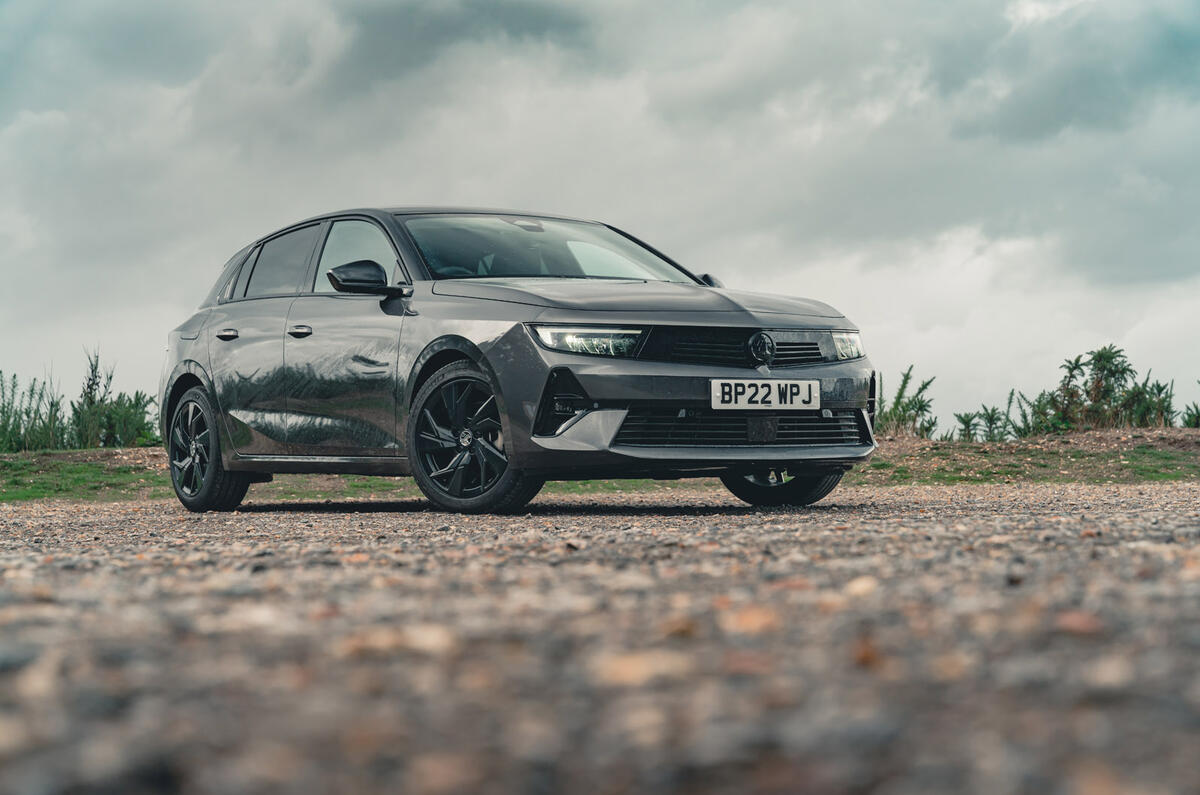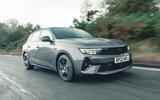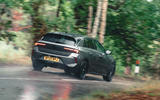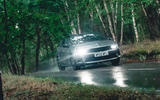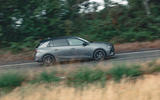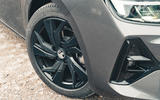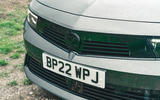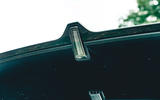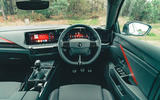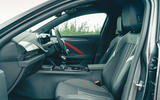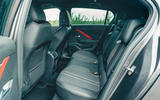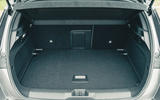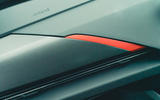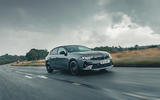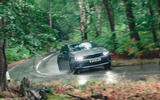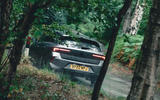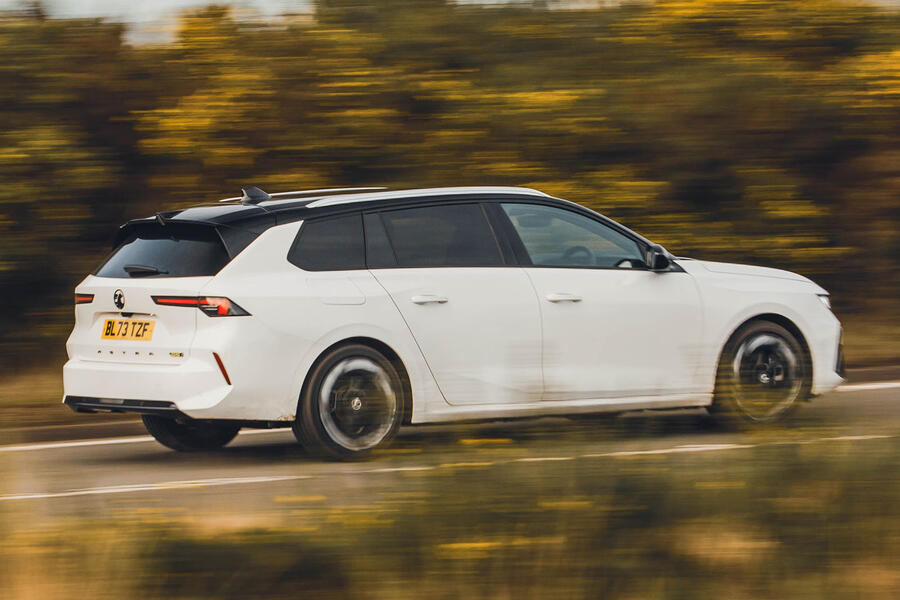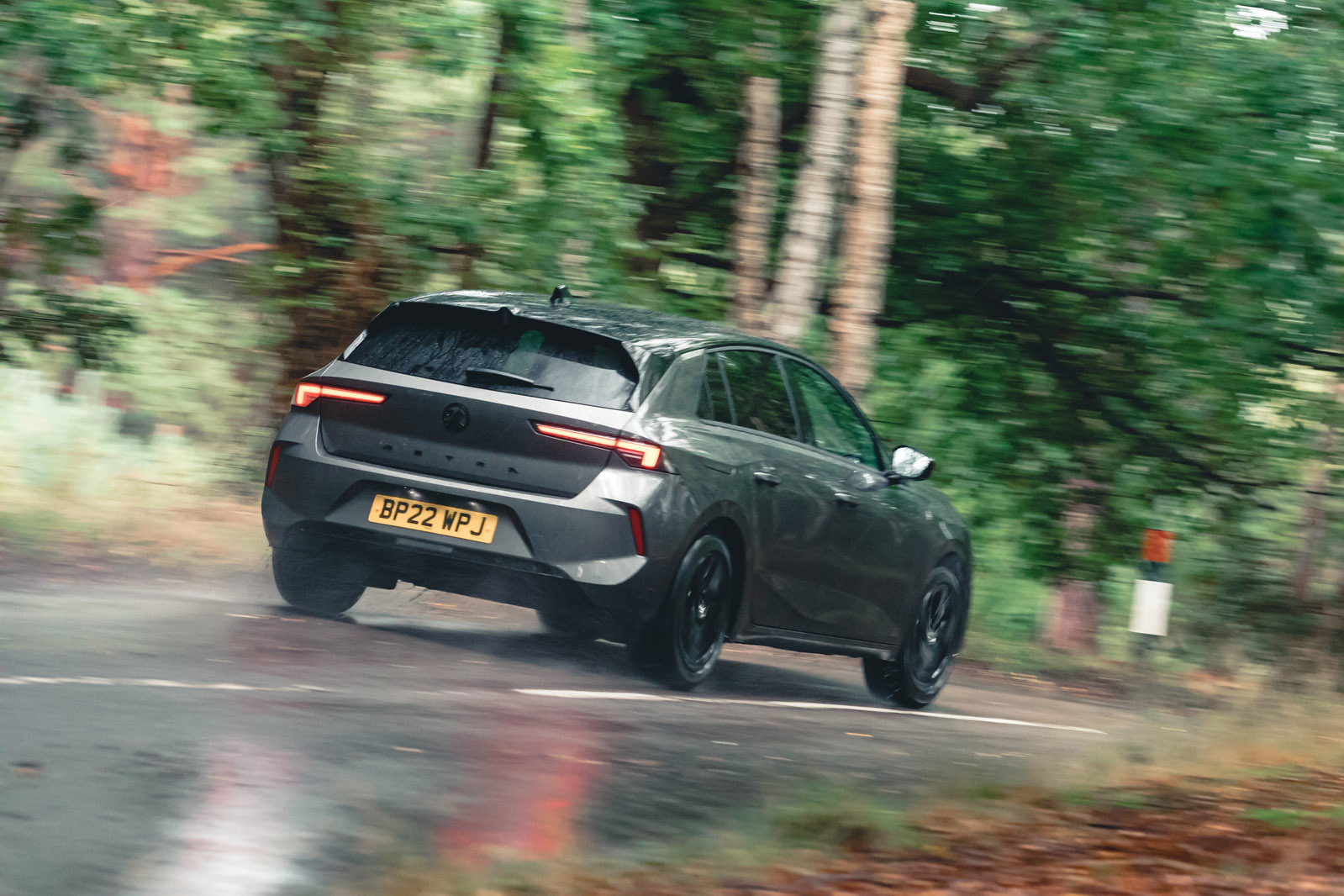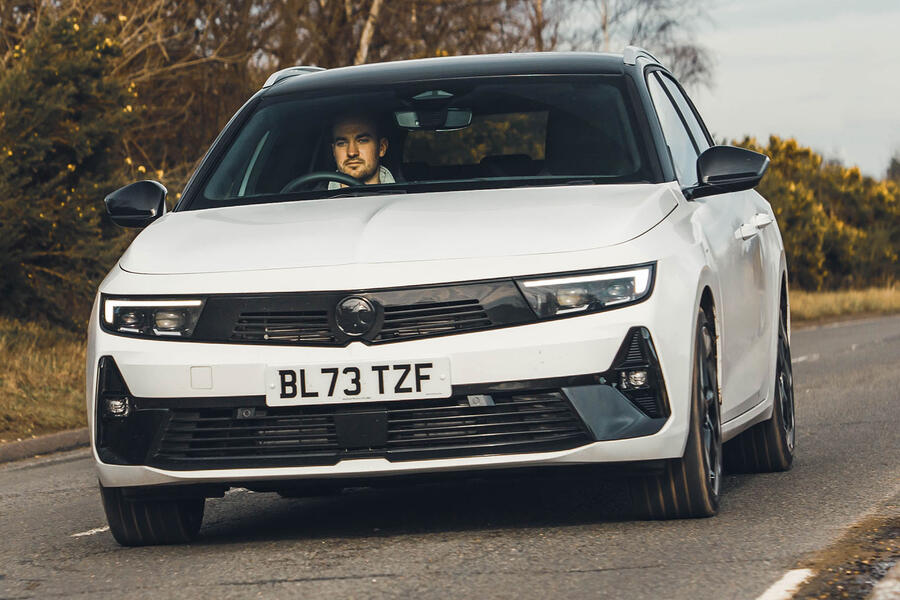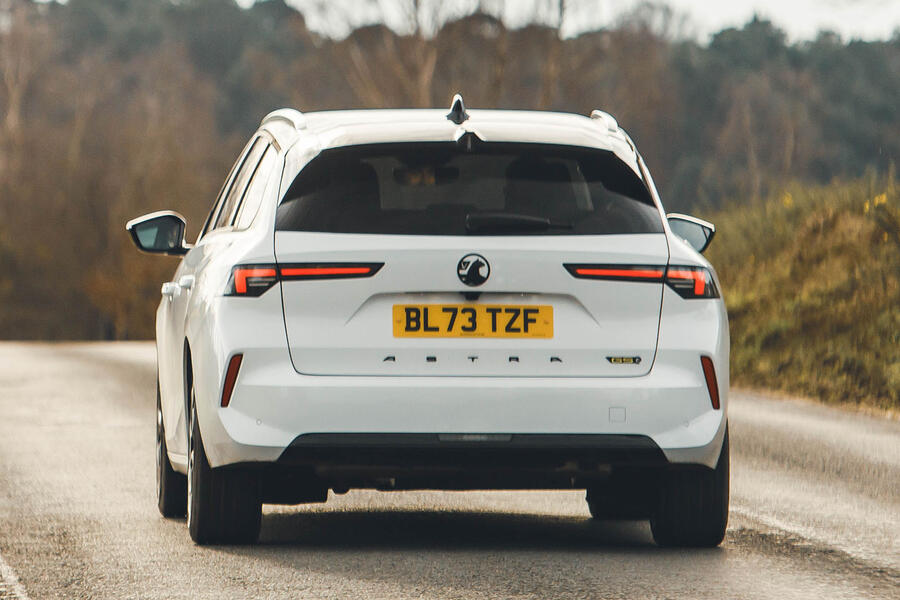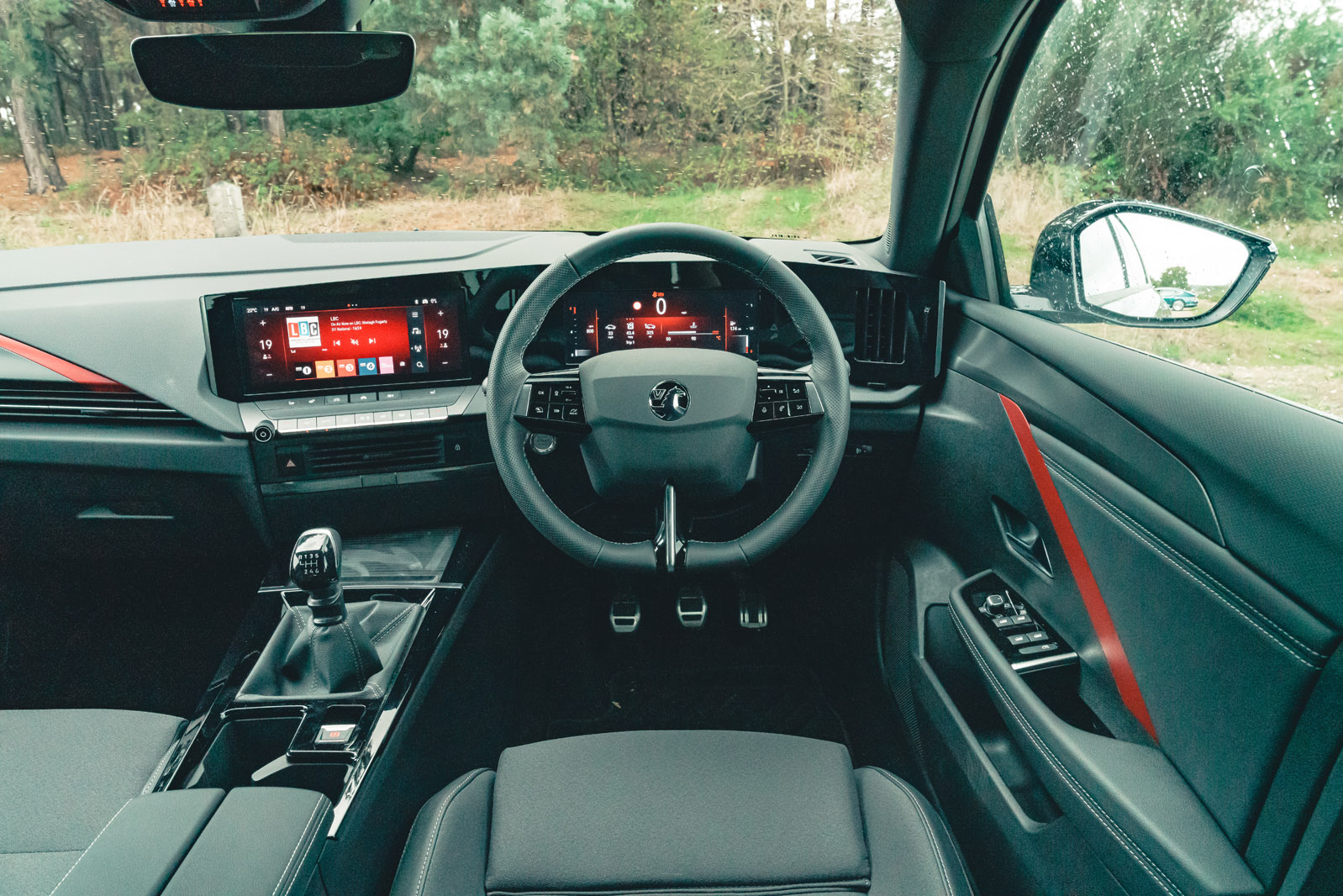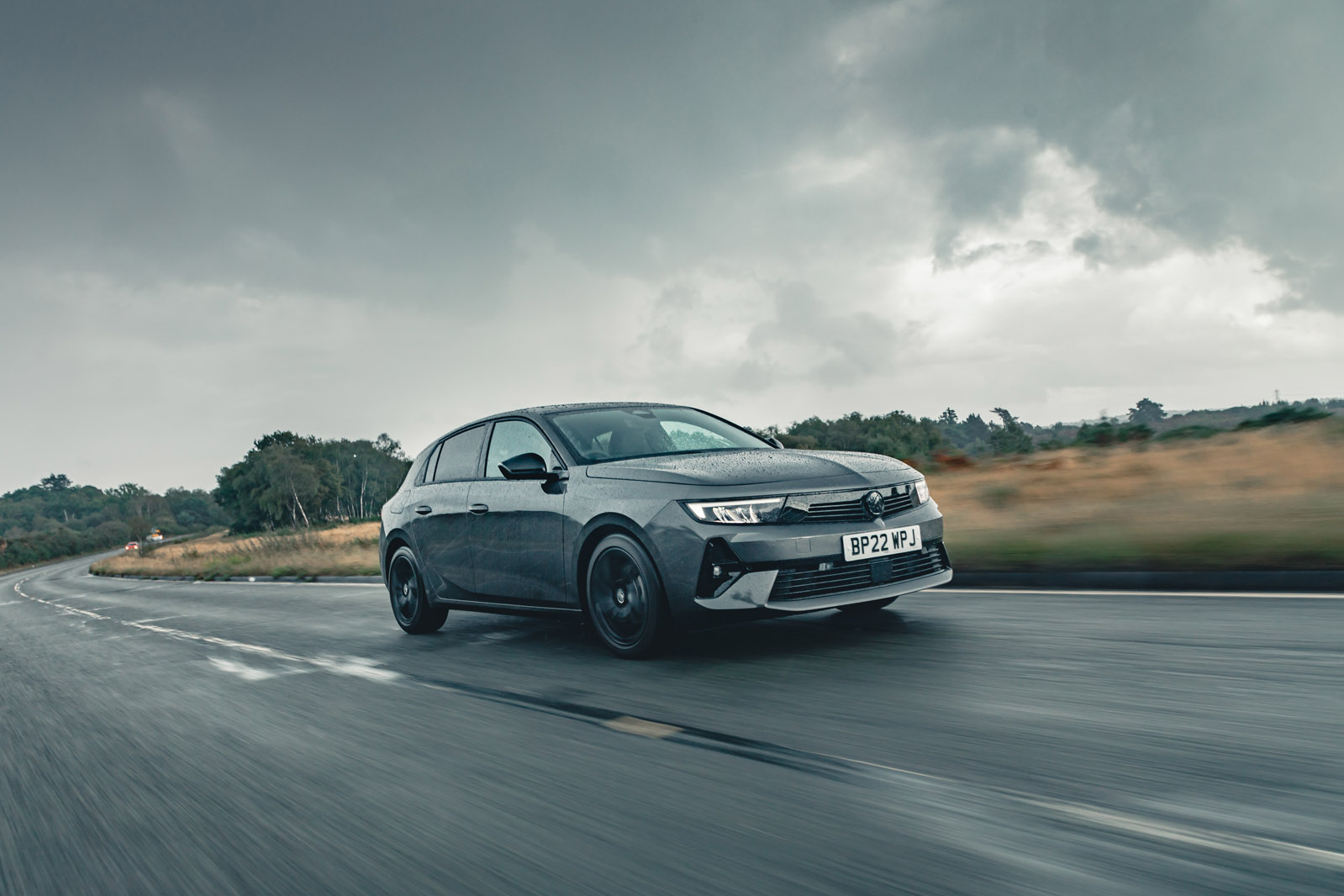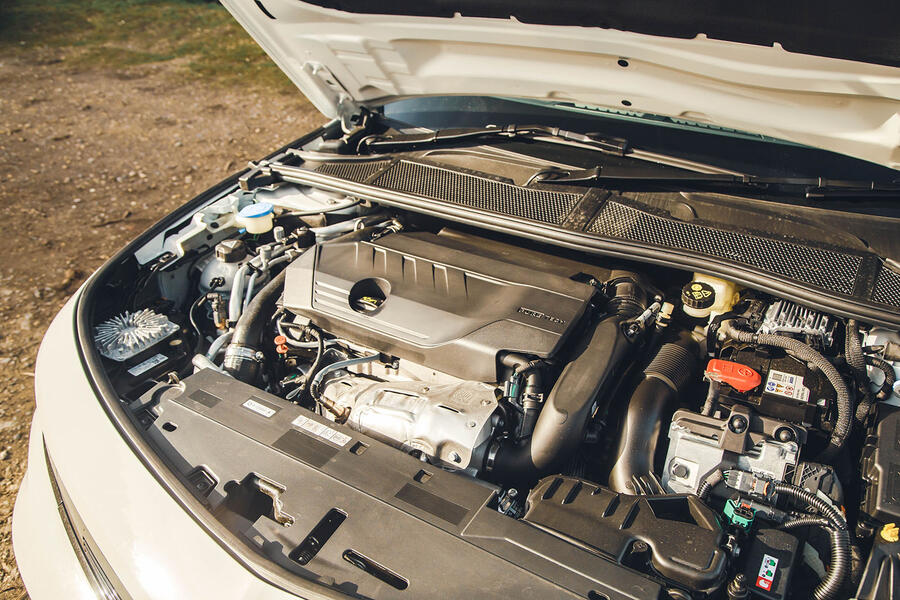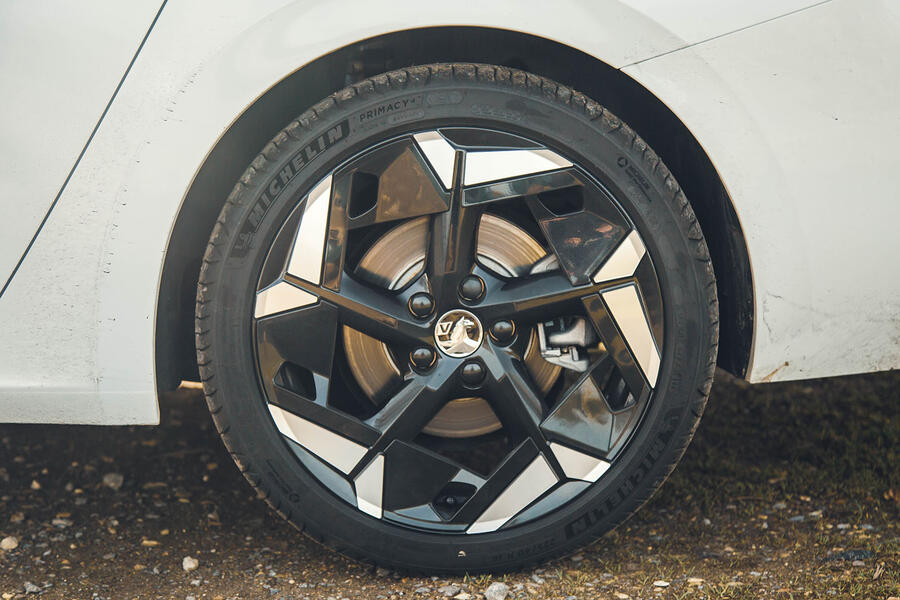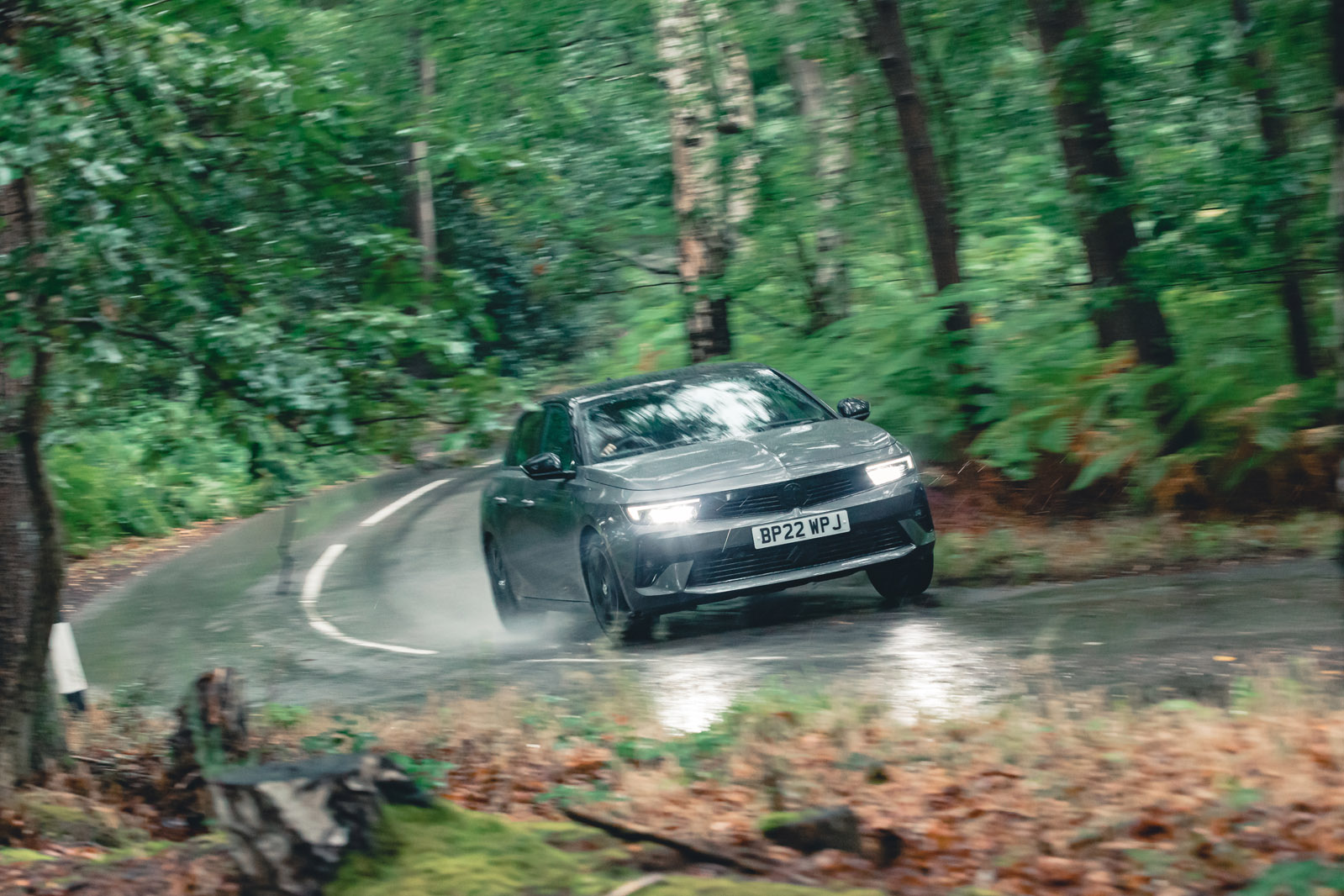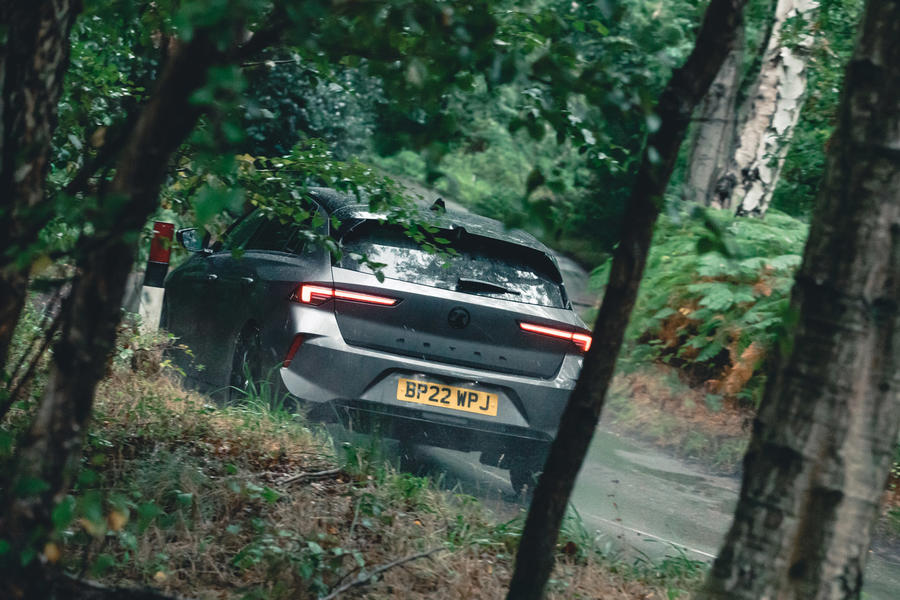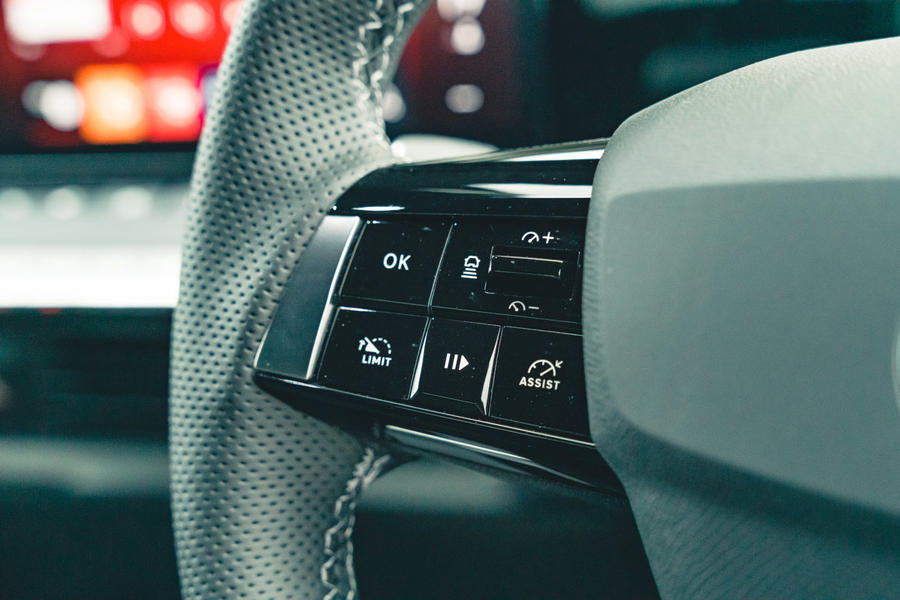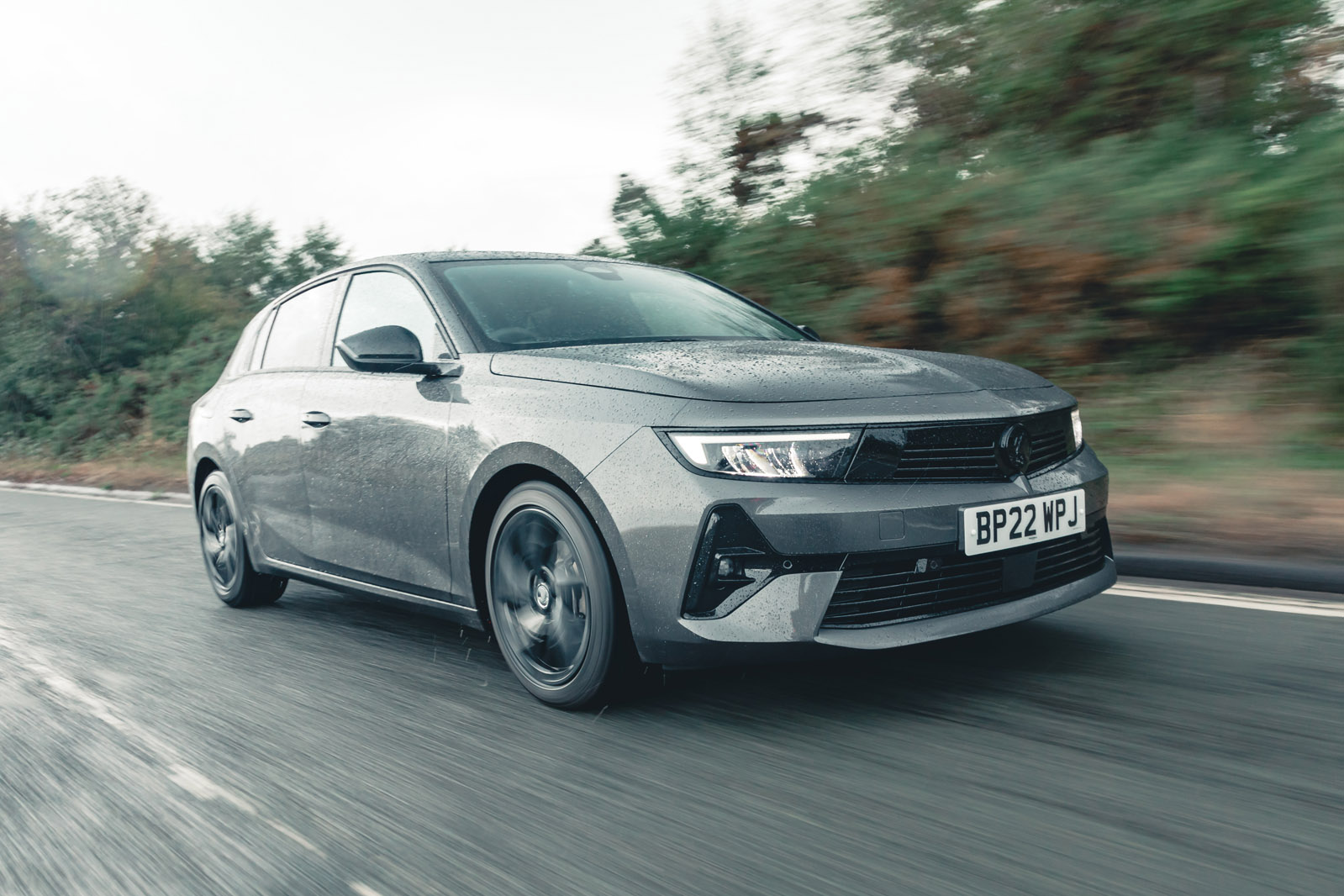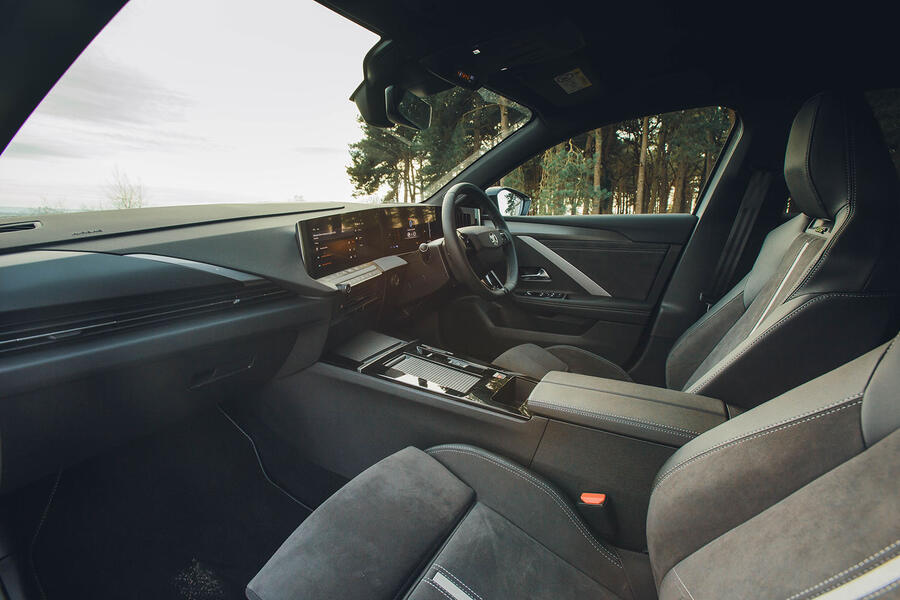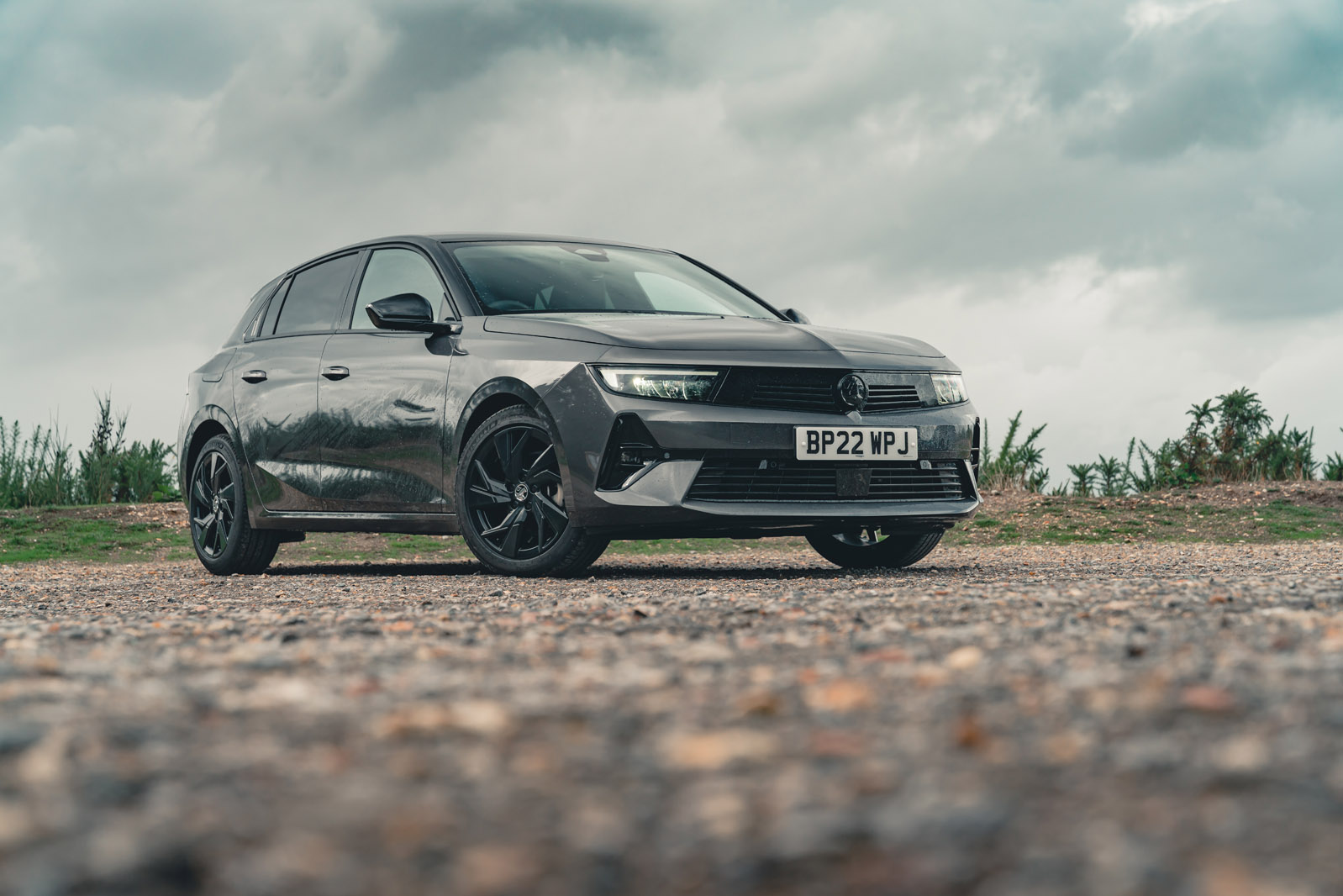Vauxhall/Opel’s product planners freely admit that, in today’s SUV- and crossover-dominated era, traditional hatchbacks need to be designed differently. Those who want a more spacious, versatile and convenient compact car than the new Astra aren’t short of options, after all.
For that reason, Astra designers will tell you that they gave aesthetic appeal higher priority over cabin packaging this time round than their previous equivalents probably did.
And while the success of that philosophy must be judged from the outside of the car, the inevitable consequences are to be found within the cabin. The Astra is a lower-slung car than it used to be, and has a lower driving position as well.
But while occupant space is fairly generous for the driver and front passenger, it offers less second-row space than its predecessor did. Our tape measure indicated 680mm of typical rear leg room, 20mm less than we recorded in the Mk7 Astra we tested in 2015. Rear head room is also a little short of the standard needed for taller adults to travel comfortably, even though good-sized rear doors make access easy enough.
Despite a 57mm-longer wheelbase, the estate version doesn’t seem to have gained much rear occupant space, as we measured an identical amount of rear leg room. Head room, on the other hand, is more generous. As you’d expect, the estate’s boot is much more capacious, at 597 litres for the petrol version (versus 422 litres in the hatchback) and 516 in the hybrids (352 in the hatch).
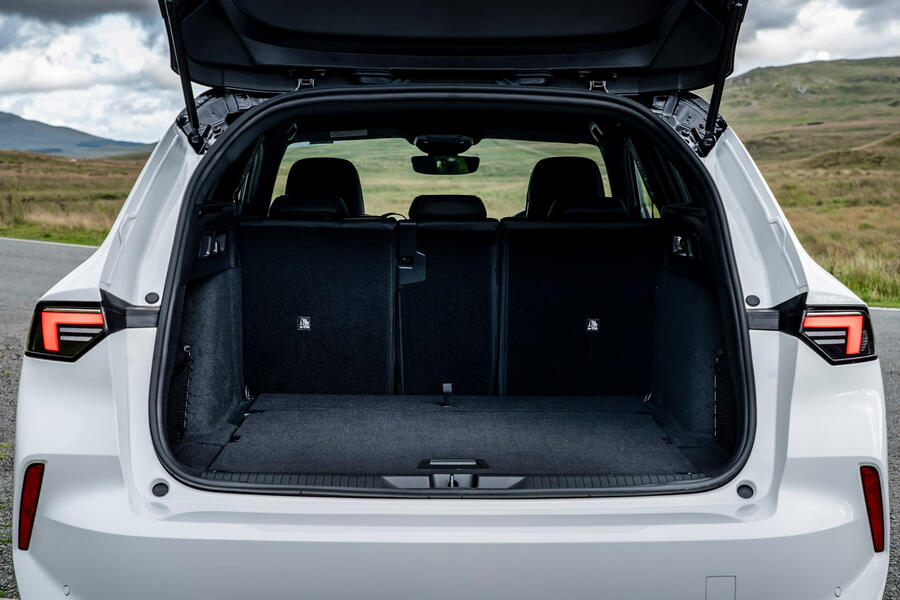
Up front, you see evidence of the ‘digital detox’ that the Astra, with its traditionally button-busy dashboard, has been on – though, thankfully, not too much of it. Having integrated a digital instrument screen as part of the ‘Pure Panel’ flight console that extends from the driver’s side of the fascia right across to span the centre console, Vauxhall clearly wants us now to think of the Astra as a fully up-to-date, technologically sophisticated operator. To give it due credit, it isn’t missing that definition by much.
In addition to those driver-customisable digital clocks, you get a 10.0in infotainment system with wireless smartphone mirroring and a fully networked factory navigation by TomTom both as standard, plus wireless device charging and a head-up display on top trims (our mid-level GS Line car didn’t have them).
Top-rung GSe cars don't offer much in the way of additional trinketry, aside from suede-trimmed sports seats, and a couple of neat GSe badges positioned on them. The seats themselves are comfortable on longer journeys and offer enough support that you have the confidence to chuck it into the next available corner. It is, however, a shame that Vauxhall didn't try harder with it.
What's more, the desired design effect of the plasticky-looking Pure Panel is a bit underwhelming on the eye but the firm’s decision to stick with physical controls for things like heater temperature, audio volume control and demist is unquestionably the right one.
Overall, then, the Astra’s dashboard layout is intelligent, and it has welcome flashes of colour in places. Material quality standards are a little below class standards elsewhere, though, while cabin storage is quite generous in places (the glovebox and armrest cubby) but frustratingly slight elsewhere (try getting a bottle out of one of those obstructed door pockets without taking your eyes off the road).
Multimedia system
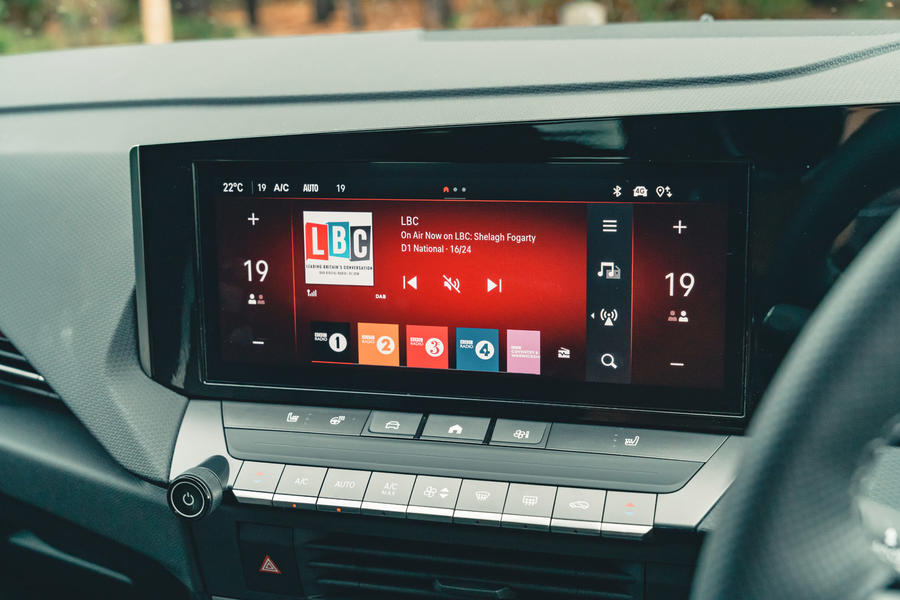
The Astra’s 10.0in PureConnect infotainment system has TomTom navigation as standard, but also offers wireless device mirroring for both Apple and Android devices. You get a year’s data connectivity subscription with the car but have to pay to extend it thereafter.
It’s a system with a configurable modular layout of the main touchscreen itself, so you can choose which information is displayed on the home screen and customise the instrument screen similarly. It takes a few stationary minutes to figure out how, but it’s time well spent.




